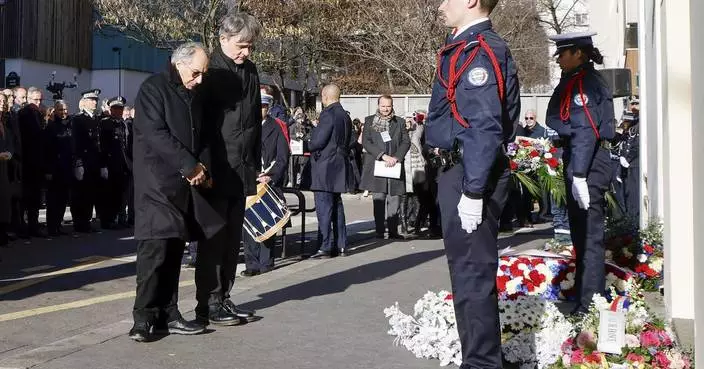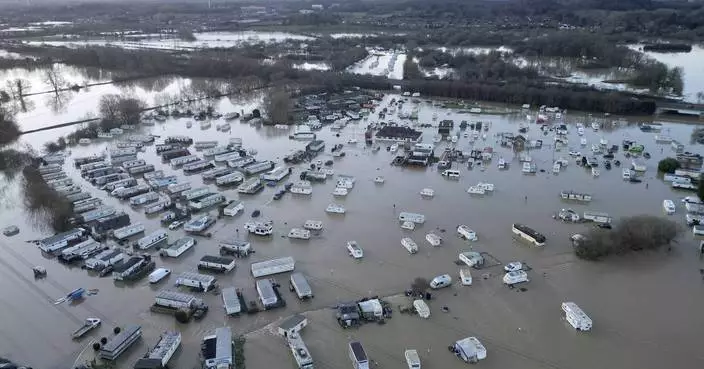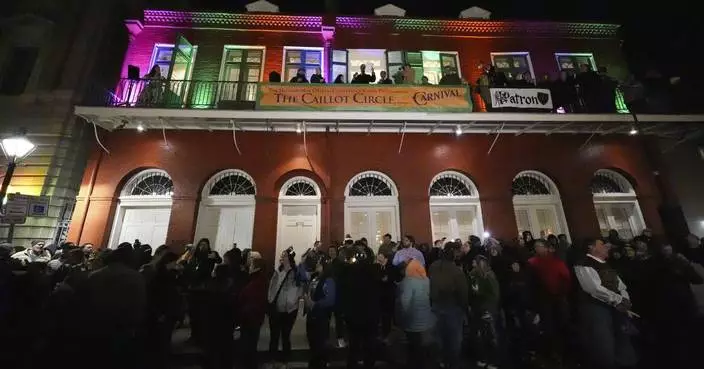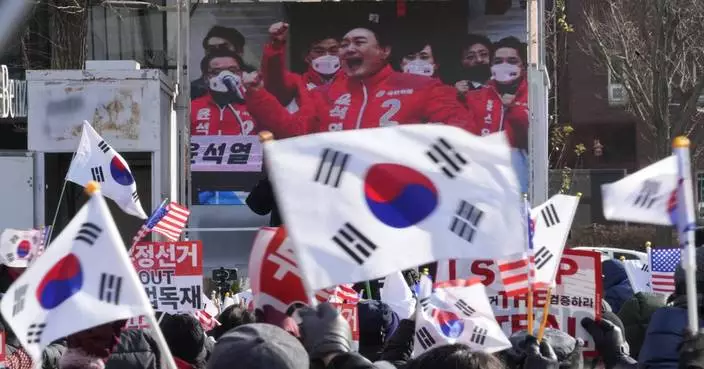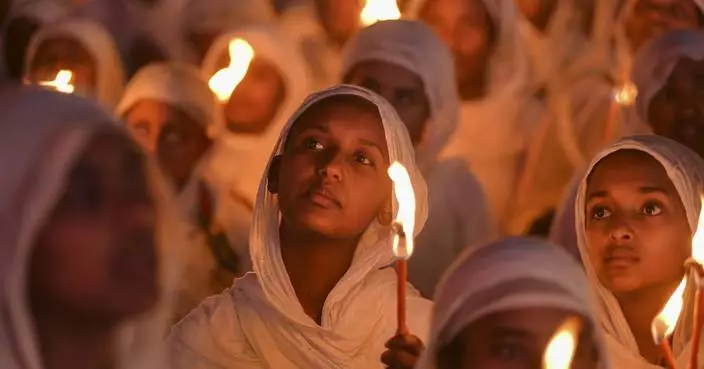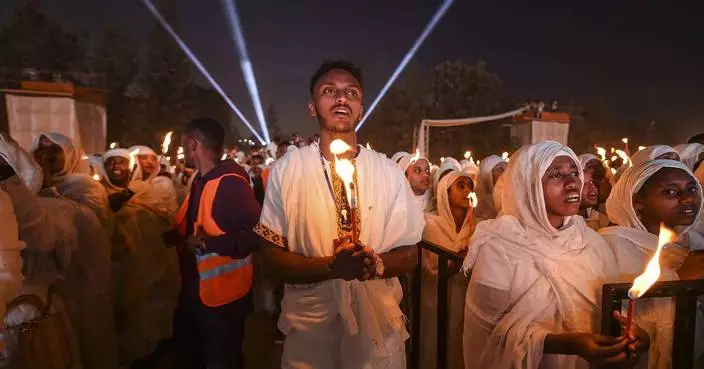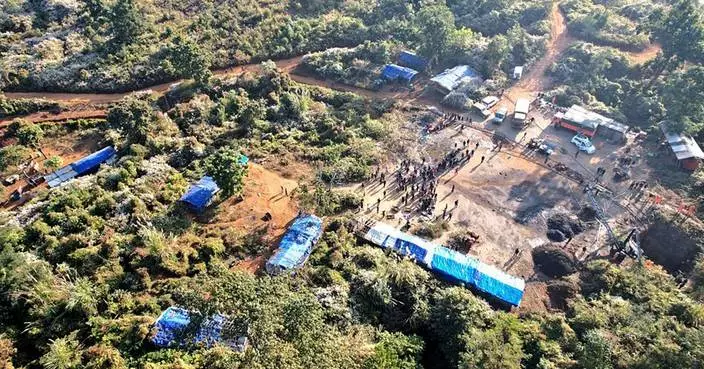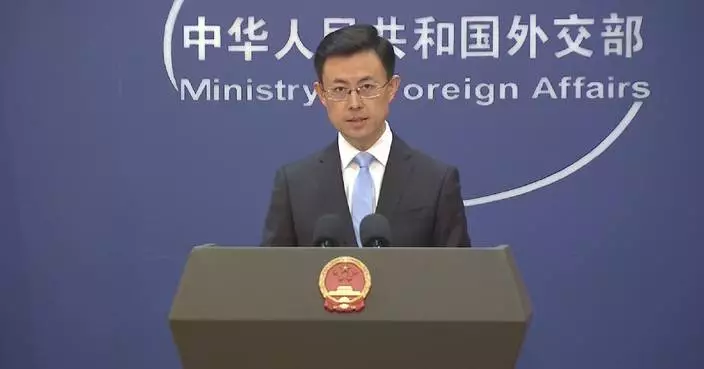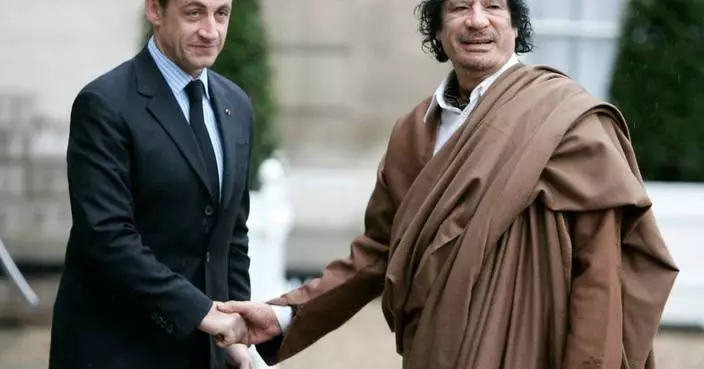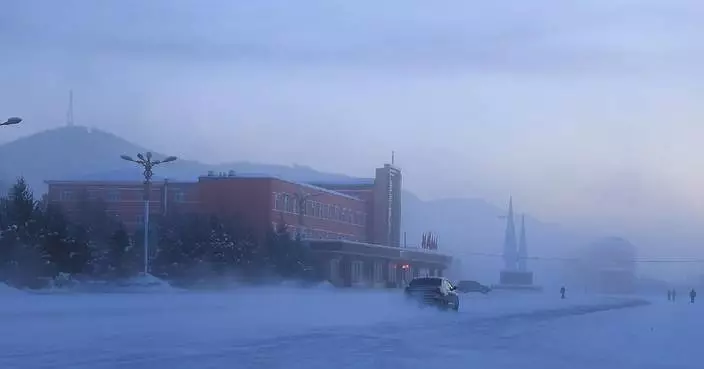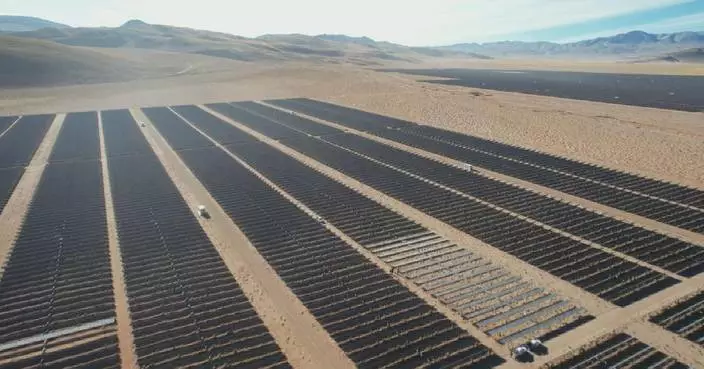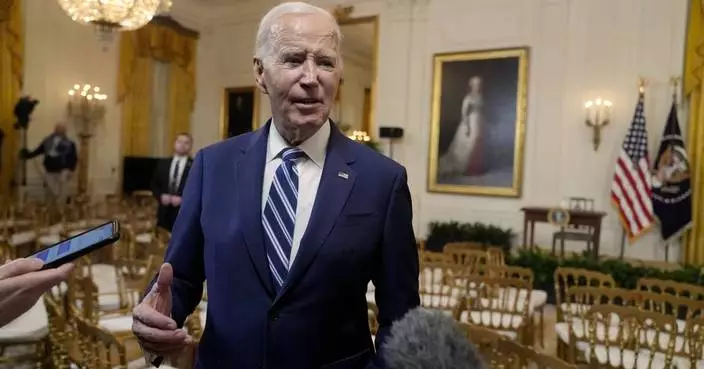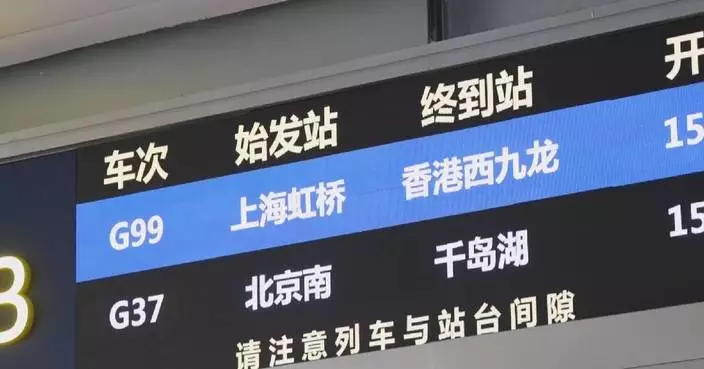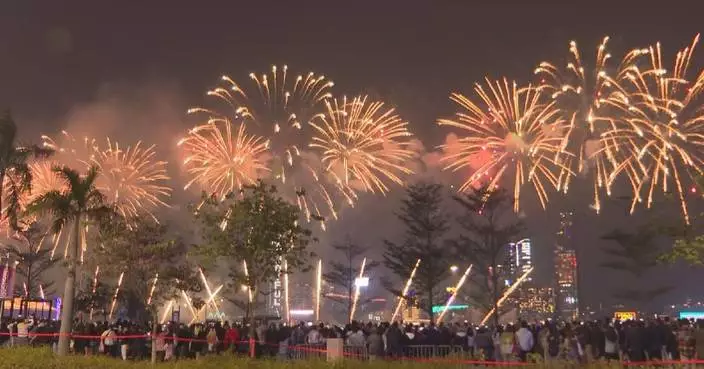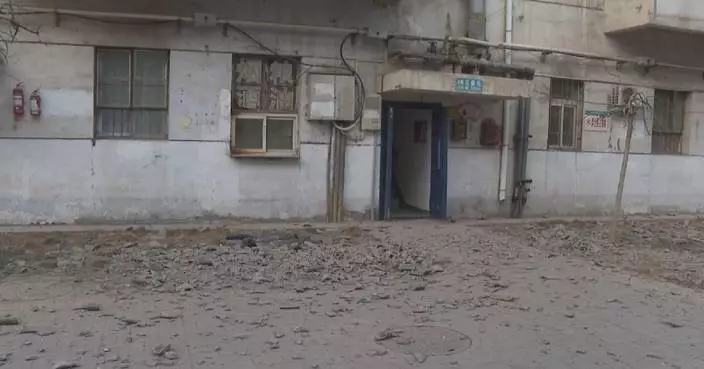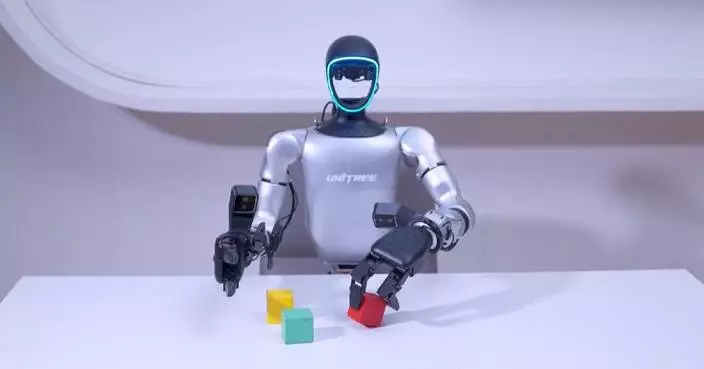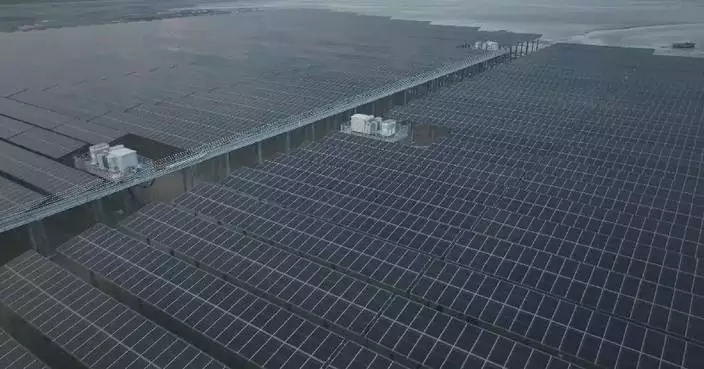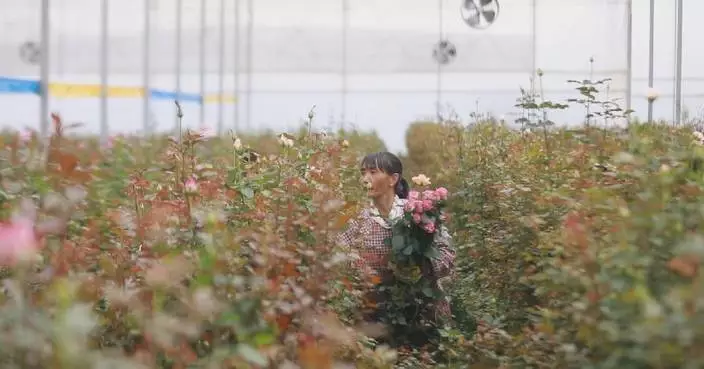BEIRUT (AP) — More than 400,000 children in Lebanon have been displaced in the past three weeks, a top official with the U.N. children’s agency said Monday, warning of a “lost generation” in the small country grappling with multiple crises and now in the middle of war.
Israel has escalated its campaign against the Lebanon-based Hezbollah militant group, including launching a ground invasion, after a year of exchanges of fire during its war with Hamas in Gaza.
Click to Gallery
A displaced man sets up a tent as temporary shelter after fleeing the Israeli airstrikes in Dahiyeh, Beirut, Lebanon, Monday, Oct. 14, 2024. (AP Photo/Bilal Hussein)
Families fleeing the Israeli airstrikes in the south, sit in front of the Mohammad al-Amin Mosque in downtown Beirut, Lebanon, Monday, Oct. 14, 2024. (AP Photo/Bilal Hussein)
Families fleeing Israeli airstrikes in the south, sit in Martyrs' square, in Beirut, Lebanon, Monday, Oct. 14, 2024. (AP Photo/Bilal Hussein)
Children play next to their family's tent after fleeing the Israeli airstrikes in Dahiyeh, Beirut, Lebanon, Monday, Oct. 14, 2024. (AP Photo/Bilal Hussein)
People walk past tents set up as temporary shelters by displaced families fleeing the Israeli airstrikes in the south and Dahiyeh, on Beirut's corniche, Lebanon, Monday, Oct. 14, 2024. (AP Photo/Bilal Hussein)WLD
Children play as their father, left, set up a tent as temporary shelter after fleeing the Israeli airstrikes in Dahiyeh, Beirut, Lebanon, Monday, Oct. 14, 2024. (AP Photo/Bilal Hussein)
A displaced family fleeing the Israeli airstrikes in the south, sits next to their tent on Beirut's corniche, Lebanon, Monday, Oct. 14, 2024. (AP Photo/Bilal Hussein)
The fighting in Lebanon has driven 1.2 million people from their homes, most of them fleeing to Beirut and elsewhere in the north over the past three weeks since the escalation.
Ted Chaiban, UNICEF's deputy executive director for humanitarian actions, has visited schools that have been turned into shelters to host displaced families.
“What struck me is that this war is three weeks old and so many children have been affected,” Chaiban told The Associated Press in Beirut.
“As we sit here today, 1.2 million children are deprived of education. Their public schools have either been rendered inaccessible, have been damaged by the war or are being used as shelters. The last thing this country needs, in addition to everything else it has gone through, is the risk of a lost generation.”
While some Lebanese private schools are still operating, the public school system has been badly affected by the war, along with the country's most vulnerable people such as Palestinian and Syrian refugees.
″What I’m worried about is that we have hundreds of thousands of Lebanese, Syrian, Palestinian children that are at risk of losing their learning," Chaiban said.
More than 2,300 people in Lebanon have been killed in Israeli strikes, nearly 75% of them over the last month, according to the Health Ministry. In the last three weeks, more than 100 children were killed and over 800 were wounded, Chaiban said.
He said displaced children are crammed into overcrowded shelters where three or four families can live in a classroom separated by a plastic sheet, and where 1,000 people can share 12 toilets. Not all of them work.
Many displaced families found have set up tents along roads or on public beaches.
Most displaced children have experienced so much violence, including the sounds of shelling or gunshots, that they cower at any loud noise, Chaiban said.
Then there is “evacuation orders upon evacuation orders. We’re at the beginning, and already there’s been a profound impact," he said.
The escalation has also put over 100 primary health care facilities out of service, while 12 hospitals are either no longer working or partially functional.
Water infrastructure has also come under attack. In the last three weeks, 26 water stations providing water to almost 350,000 people have been damaged, Chaiban said. UNICEF is working with local authorities to repair them.
He called for civilian infrastructure to be protected. And he appealed for a cease-fire in Lebanon and in Gaza, saying there needs to be political will and a realization that the conflict cannot be resolved through military means.
“What we must do is make sure that this stops, that this madness stops, that there’s a cease-fire before we get to the kind of destruction and pain and suffering and death that we’ve seen in Gaza,” Chaiban said.
With so many needs, he said, the emergency response appeal for $108 million in Lebanon has only been 8% funded three weeks into the escalation.

A displaced man sets up a tent as temporary shelter after fleeing the Israeli airstrikes in Dahiyeh, Beirut, Lebanon, Monday, Oct. 14, 2024. (AP Photo/Bilal Hussein)

Families fleeing the Israeli airstrikes in the south, sit in front of the Mohammad al-Amin Mosque in downtown Beirut, Lebanon, Monday, Oct. 14, 2024. (AP Photo/Bilal Hussein)

Families fleeing Israeli airstrikes in the south, sit in Martyrs' square, in Beirut, Lebanon, Monday, Oct. 14, 2024. (AP Photo/Bilal Hussein)

Children play next to their family's tent after fleeing the Israeli airstrikes in Dahiyeh, Beirut, Lebanon, Monday, Oct. 14, 2024. (AP Photo/Bilal Hussein)

People walk past tents set up as temporary shelters by displaced families fleeing the Israeli airstrikes in the south and Dahiyeh, on Beirut's corniche, Lebanon, Monday, Oct. 14, 2024. (AP Photo/Bilal Hussein)WLD

Children play as their father, left, set up a tent as temporary shelter after fleeing the Israeli airstrikes in Dahiyeh, Beirut, Lebanon, Monday, Oct. 14, 2024. (AP Photo/Bilal Hussein)

A displaced family fleeing the Israeli airstrikes in the south, sits next to their tent on Beirut's corniche, Lebanon, Monday, Oct. 14, 2024. (AP Photo/Bilal Hussein)
ANNAPOLIS, Md. (AP) — The next round of bitter cold was set to envelop the southern U.S. on Tuesday, after the first significant winter storm of the year blasted a huge swath of the country with ice, snow and wind.
The immense storm system brought disruption even to areas of the country that usually escape winter’s wrath, downing trees in some Southern states, threatening a freeze in Florida and causing people in Dallas to dip deep into their wardrobes for hats and gloves.
By early Tuesday, wind chill temperatures could dip into the teens to low 20s (as low as minus 10.5 C) from Texas across the Gulf Coast, according to the National Weather Service. A low-pressure system is then expected to form as soon as Wednesday near south Texas, bringing the potential of snow to parts of the state that include Dallas, as well as to Oklahoma, Arkansas and Louisiana.
The polar vortex that dipped south over the weekend kept much of the country east of the Rockies in its frigid grip Monday, making many roads treacherous, forcing school closures, and causing widespread power outages and flight cancellations.
Ice and snow blanketed major roads in Kansas, western Nebraska and parts of Indiana, where the National Guard was activated to help stranded motorists. The National Weather Service issued winter storm warnings for Kansas and Missouri, where blizzard conditions brought wind gusts of up to 45 mph (72 kph). The warnings extended to New Jersey into early Tuesday.
A Kentucky truck stop was jammed with big rigs forced off an icy and snow-covered Interstate 75 on Monday just outside Cincinnati. A long haul driver from Los Angeles carrying a load of rugs to Georgia, Michael Taylor said he saw numerous cars and trucks stuck in ditches and was dealing with icy windshield wipers before he pulled off the interstate.
“It was too dangerous. I didn’t want to kill myself or anyone else,” he said.
The polar vortex of ultra-cold air usually spins around the North Pole, but it sometimes plunges south into the U.S., Europe and Asia. Studies show that a fast-warming Arctic is partly to blame for the increasing frequency of the polar vortex extending its grip.
The eastern two-thirds of the U.S. dealt with bone-chilling cold and wind chills Monday, with temperatures in some areas far below normal.
A cold weather advisory will take effect early Tuesday across the Gulf Coast. In Texas’ capital of Austin and surrounding cities, wind chills could drop as low as 15 degrees (minus 9.4 C).
The Northeast was expected to get several cold days.
Hundreds of car accidents were reported in Virginia, Indiana, Kansas and Kentucky, where a state trooper was treated for non-life-threatening injuries after his patrol car was hit.
Virginia State Police responded to at least 430 crashes Sunday and Monday, including one that was fatal. Police said other weather-related fatal accidents occurred Sunday near Charleston, West Virginia, and Monday in Winston-Salem, North Carolina. Kansas saw two deadly crashes over the weekend.
More than 2,300 flights were canceled and at least 9,100 more were delayed nationwide as of Monday night, according to tracking platform FlightAware. Ronald Reagan Washington National Airport reported that about 58% of arrivals and 70% of departures had been canceled.
A record 8 inches (more than 20 centimeters) of snow fell Sunday at the Cincinnati/Northern Kentucky International Airport, leading to dozens of flight cancellations that lingered into Monday. About 4 inches (about 10 centimeters) fell Monday across the Cincinnati area, where car and truck crashes shut at least two major routes leading into downtown.
In Indiana, snow covered stretches of Interstate 64, Interstate 69 and U.S. Route 41, leading authorities to plead with people to stay home.
“It’s snowing so hard, the snow plows go through and then within a half hour the roadways are completely covered again,” State Police Sgt. Todd Ringle said.
The Mid-Atlantic region had been forecast to get another 6 to 12 inches (15 to 30 centimeters) of snow on Monday. Dangerously cold temperatures were expected to follow, with nighttime lows falling into the single digits (below minus 12.7 C) through the middle of the week across the Central Plains and into the Mississippi and Ohio valleys.
In North Texas, 2 to 5 inches (about 5 to 13 centimeters) of snow was expected beginning Thursday, according to the National Weather Service. Snow could also hit Oklahoma and Arkansas, with some parts potentially getting more than 4 inches (about 10 centimeters).
School closings were widespread, with districts in Indiana, Virginia, Kentucky, Missouri and Kansas canceling or delaying the start of classes Monday. Among them was Kentucky’s Jefferson County Public Schools, which canceled classes and other school activities for its nearly 100,000 students.
Classes were also canceled in Maryland, where Gov. Wes Moore declared a state of emergency Sunday and announced that state government offices would also be closed Monday. Government offices also were closed Monday in Kentucky, where Gov. Andy Beshear declared a state of emergency.
Many were in the dark as temperatures plunged. More than 218,000 customers were without power Monday night across Kentucky, Indiana, Virginia, West Virginia, Illinois, Missouri and North Carolina, according to electric utility tracking website PowerOutage.us.
In Virginia’s capital city, a power outage caused a temporary malfunction in the water system, officials said Monday afternoon. Richmond officials asked those in the city of more than 200,000 people to refrain from drinking tap water or washing dishes without boiling the water first. The city also asked people to conserve their water, such as by taking shorter showers.
City officials said they were working nonstop to bring the system back online.
Whittle reported from Portland, Maine. Associated Press journalists Bruce Schreiner in Shelbyville, Kentucky; Dylan Lovan in Louisville, Kentucky; Ben Finley in Norfolk, Virginia; Lea Skene in Baltimore; Kathy McCormack in Concord, New Hampshire; Julie Walker in New York; Sophia Tareen in Chicago; Kimberly Chandler in Montgomery, Alabama; Zeke Miller in Washington, D.C.; John Raby in Charleston, West Virginia; Summer Ballentine in Columbia, Missouri; and Hallie Golden in Seattle contributed.
Read more of the AP’s climate coverage at http://www.apnews.com/climate-and-environment
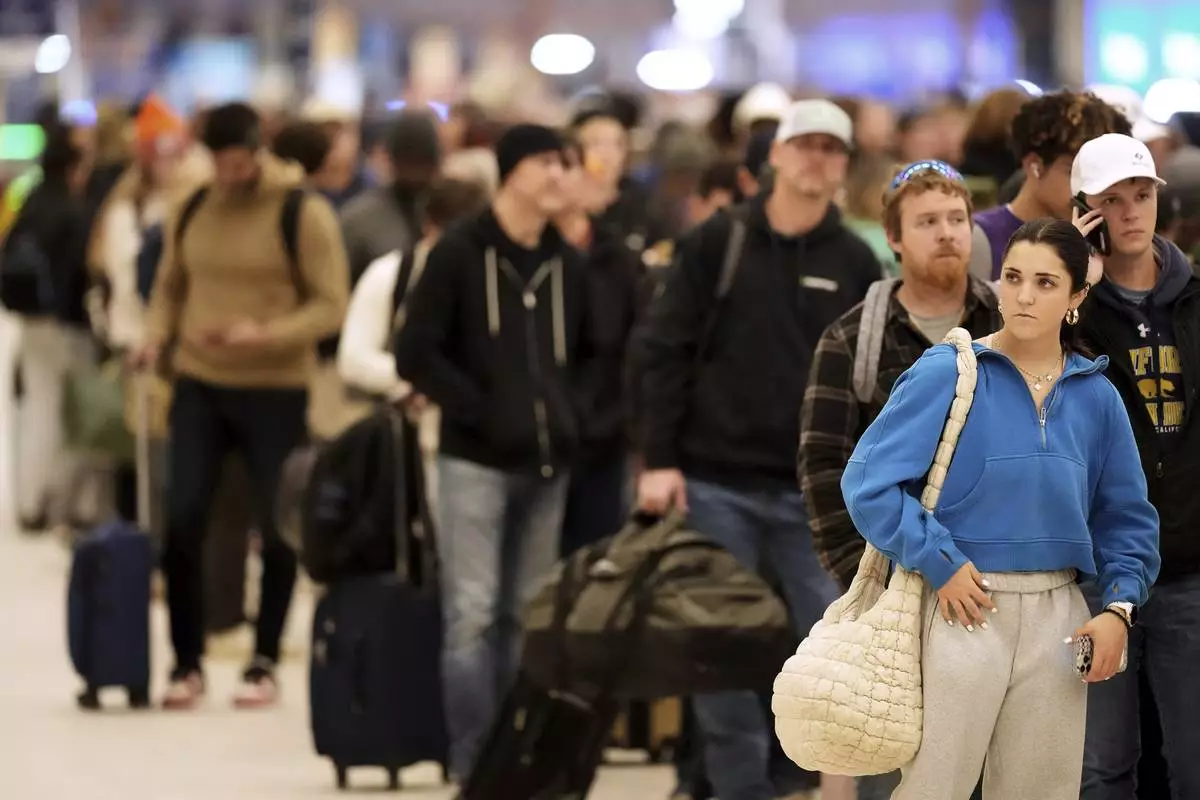
Hundreds of passengers wait to clear a security checkpoint as Kansas City International Airport worked to return to normal flight operations following flight delays and cancellations during a winter storm, Monday, Jan. 6, 2025 in Kansas City, Mo. (AP Photo/Charlie Riedel)
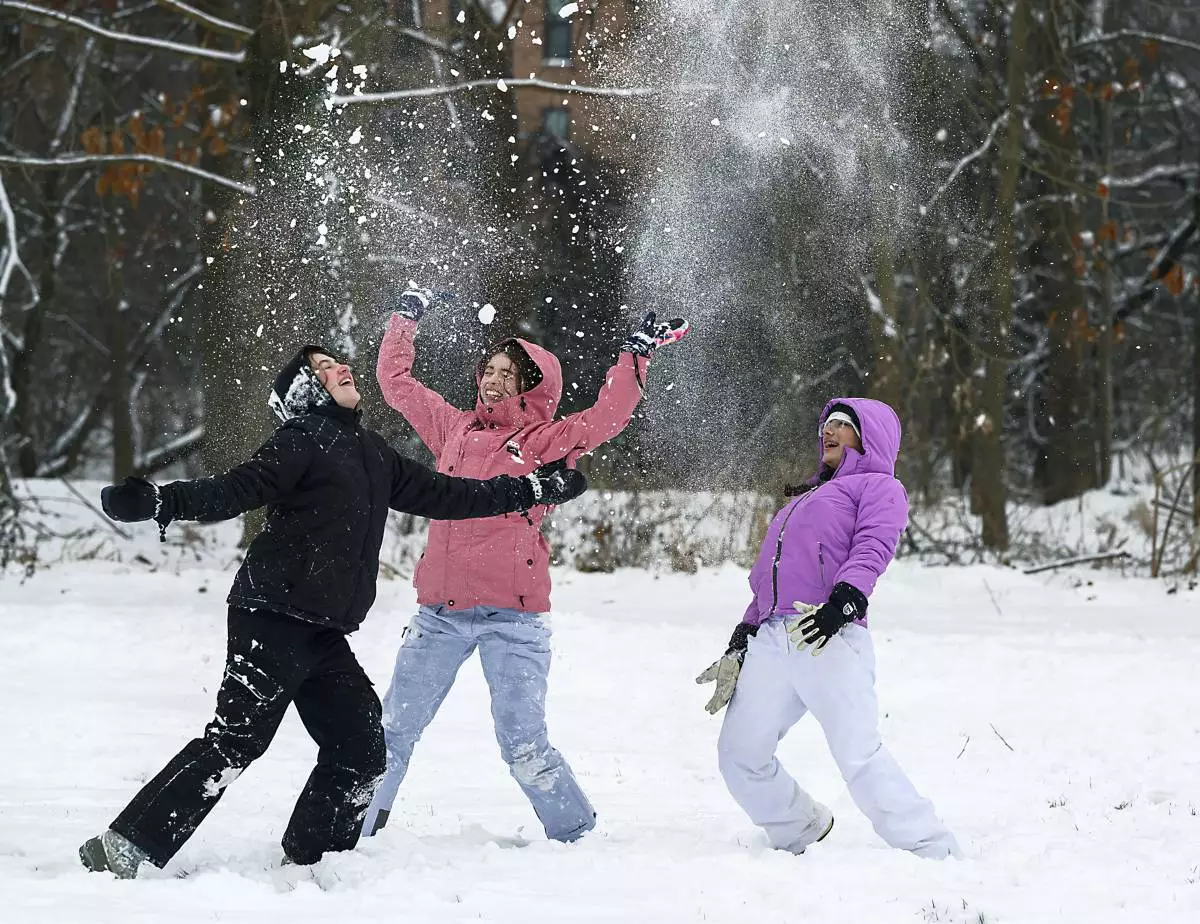
Rosie Henson, from left, Charlotte Hall and Jaya Demni play around in the snow near Schifferstadt Museum in Frederick, Md.,on Monday, Jan. 6. 2025. (Ric Dugan/The Frederick News-Post via AP)
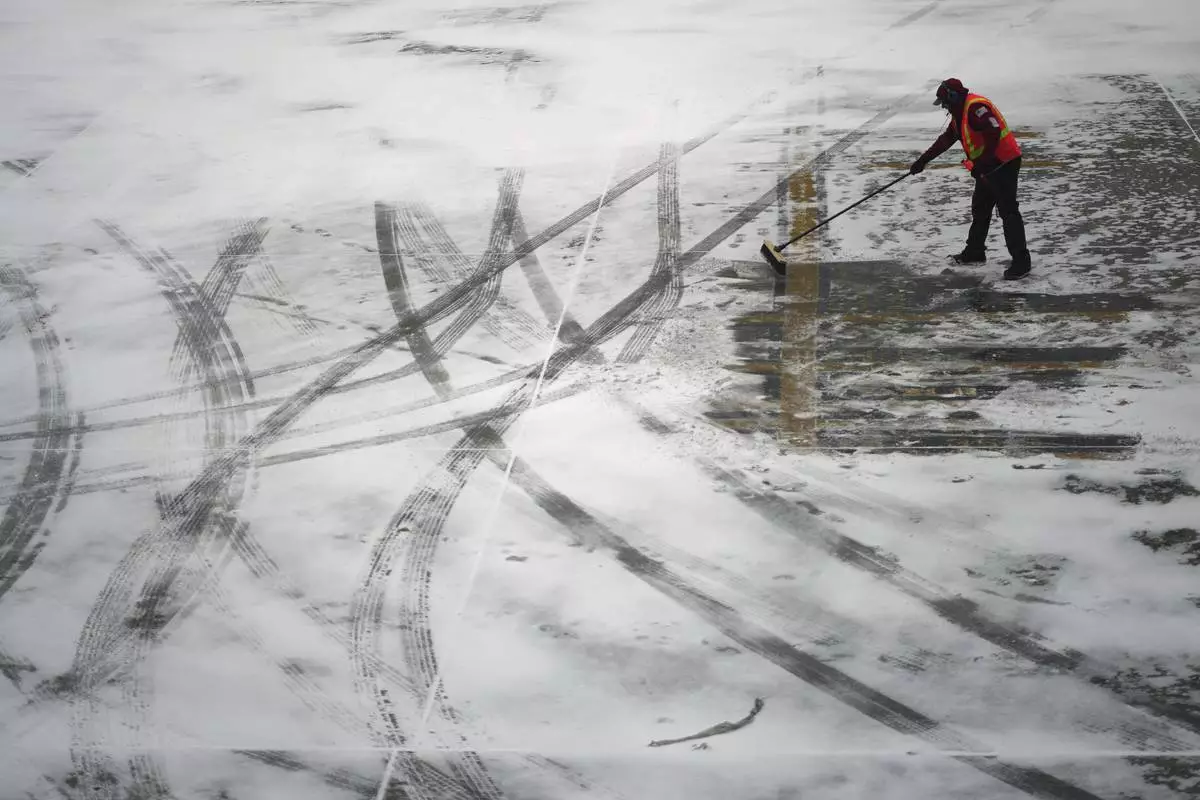
A worker clears snow from an apron before guiding a Delta Air Lines jet at the Detroit Metropolitan Wayne County Airport in Romulus, Mich., Monday, Jan. 6, 2025. (AP Photo/Charlie Riedel)
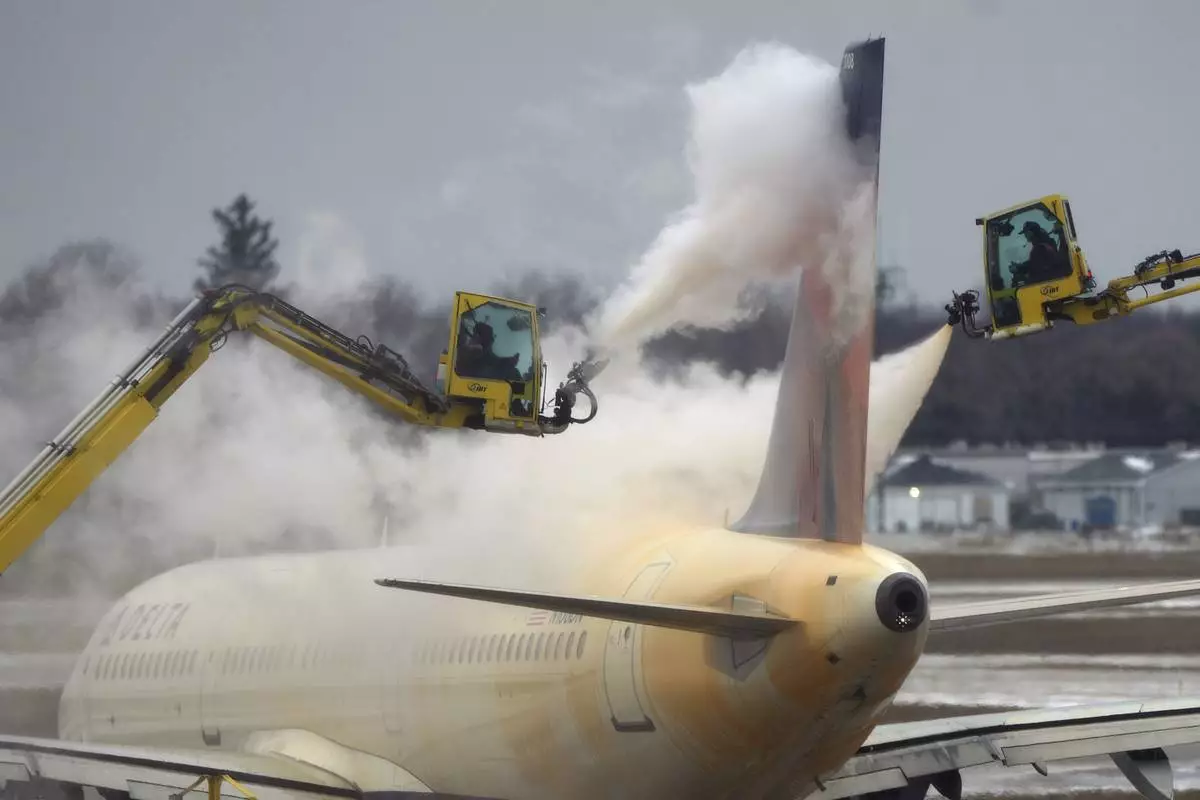
A Delta Air Lines jet is deiced before takeoff at the Detroit Metropolitan Wayne County Airport in Romulus, Mich., Monday, Jan. 6, 2025. (AP Photo/Charlie Riedel)
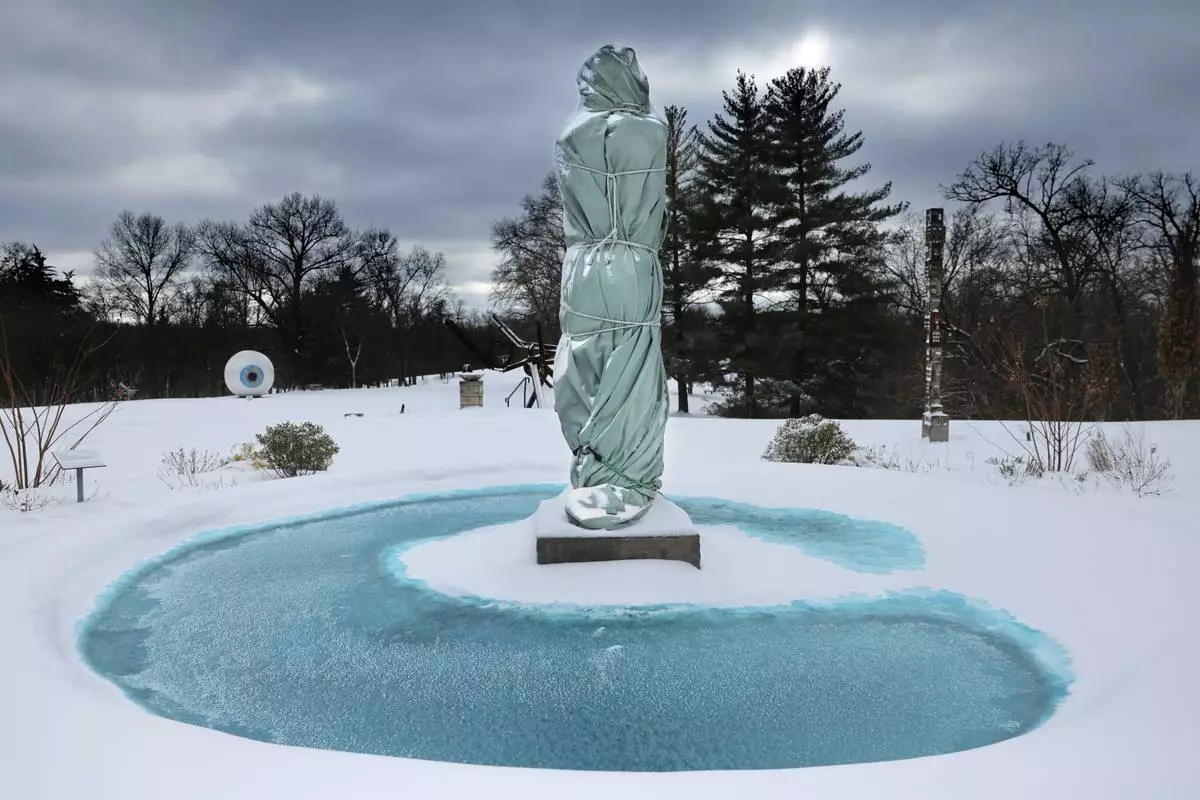
"Aurelia Roma", a 1994 Italian marble sculpture by Manuel Neri, is wrapped for the season as she stands in the pool of the Estate House terrace surrounded by snow at Laumeier Sculpture Park in Sunset Hills, Mo. on Monday, Jan. 6, 2025. (Robert Cohen/St. Louis Post-Dispatch via AP)
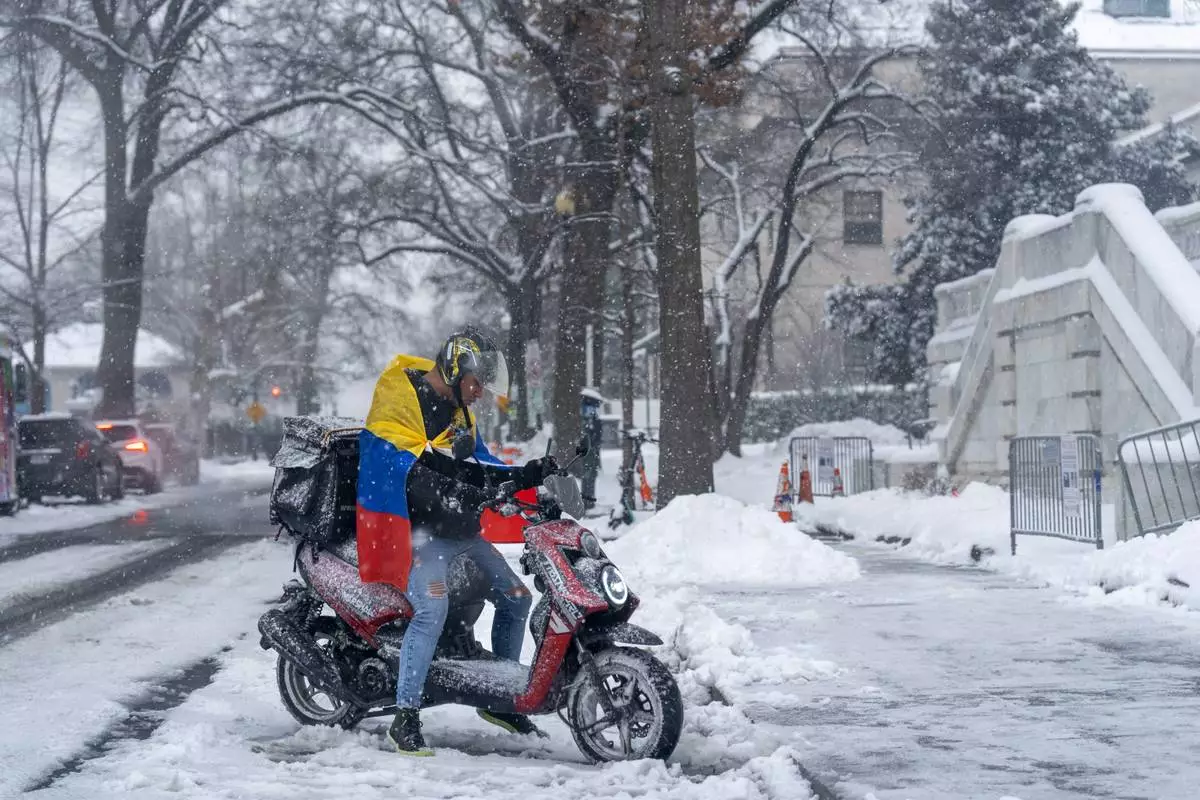
A man wearing a Venezuelan flag starts a moped as snow begins to fall again, Monday, Jan. 6, 2025, in Washington. (AP Photo/Jacquelyn Martin)
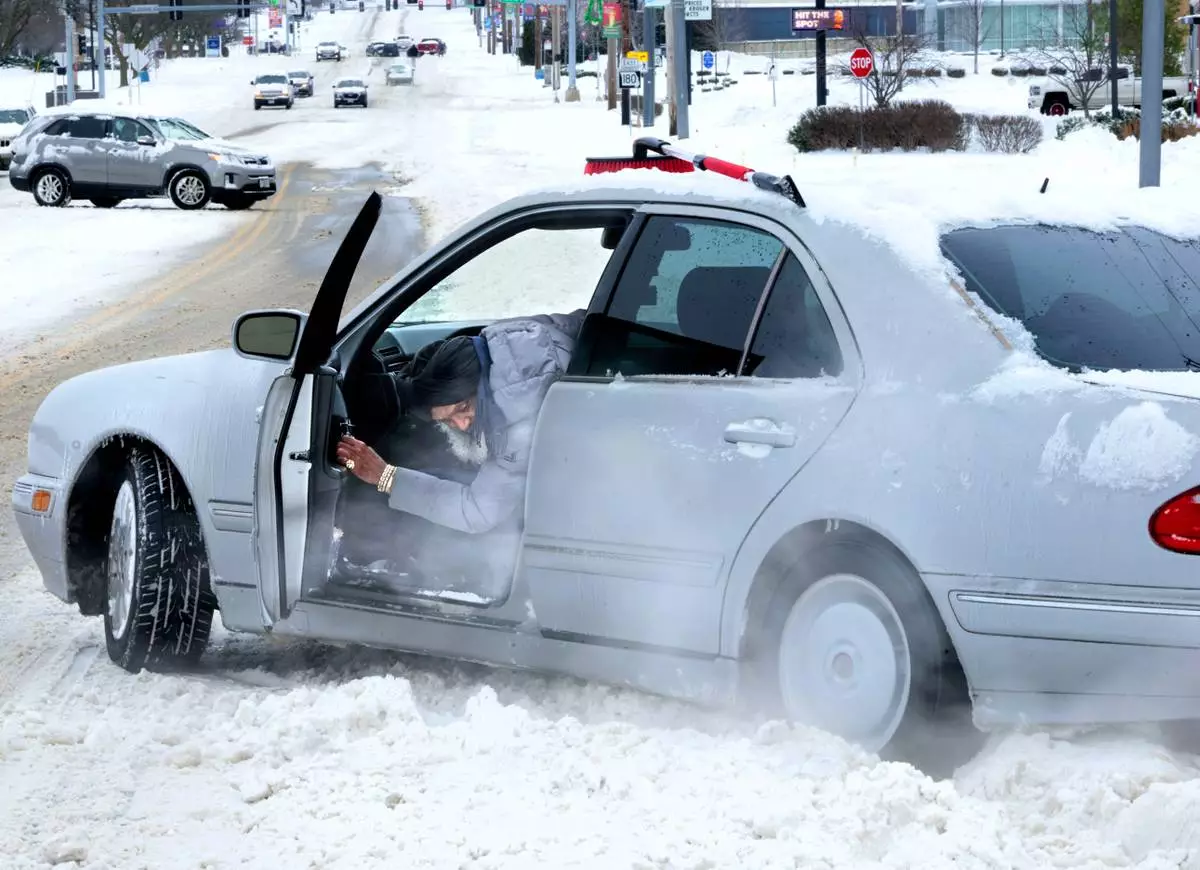
St. Ann resident Troupe El checks for traction on Monday, Jan. 6, 2025, after getting his vehicle stuck trying to enter St. Charles Rock Road from the Crossings at Northwest in St. Ann, Mo. (Christian Gooden/St. Louis Post-Dispatch via AP)
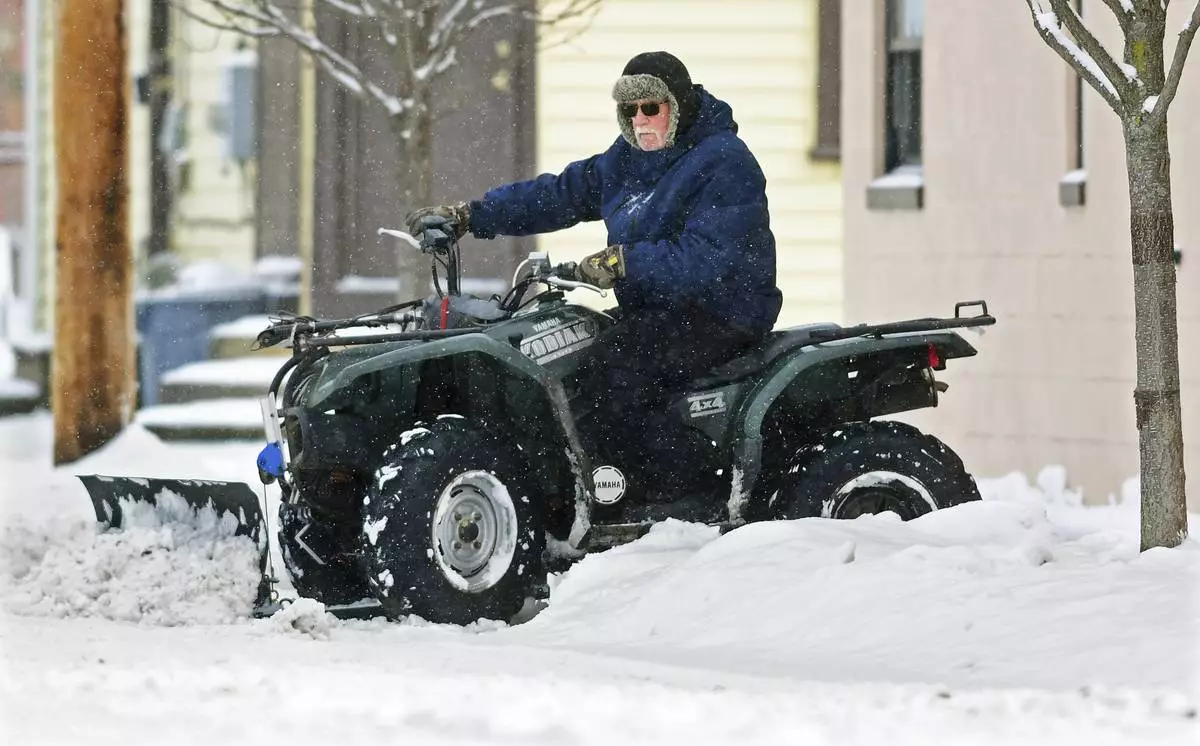
John Lovrich uses his Yamaha Kodiak 450 4x4 all-terrain vehicle to plow snow near his home in the Cambria City section of Johnstown, Pa., Monday, Jan. 6, 2025. (Thomas Slusser/The Tribune-Democrat via AP)
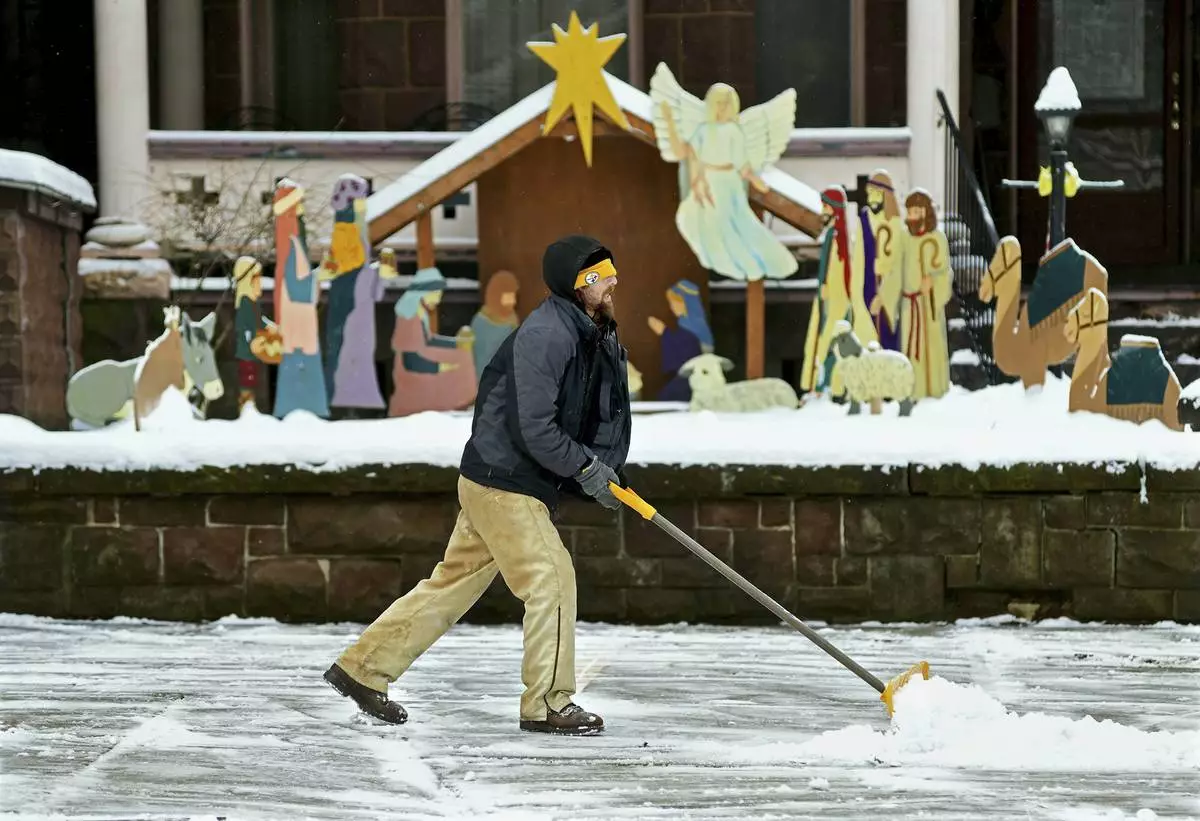
Josh Williams, of Johnstown, shovels snow from the walkway at First United Methodist Church on Vine Street in downtown Johnstown, Pa., Monday, Jan. 6, 2025. (Thomas Slusser/The Tribune-Democrat via AP)
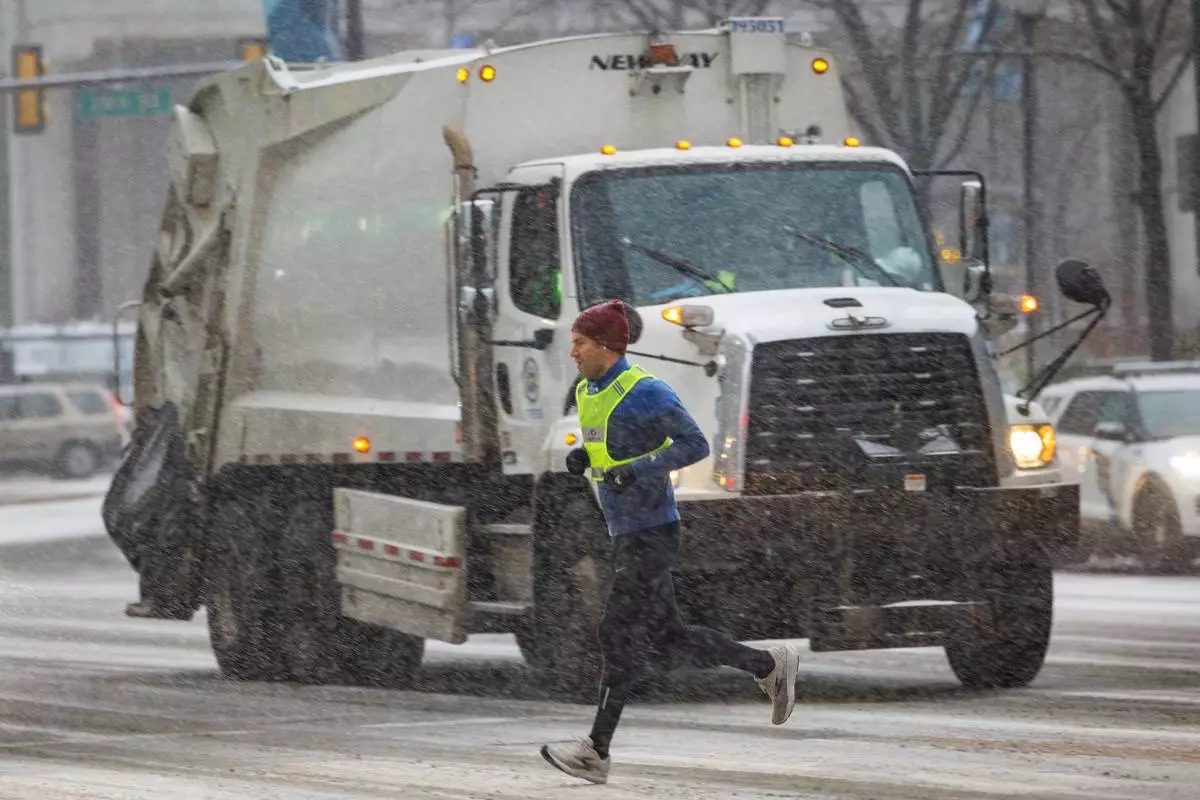
A runner passes on a snowy morning as it falls over Center City, Philadelphia, Monday, Jan. 6, 2025. (Alejandro A. Alvarez/The Philadelphia Inquirer via AP)

Truckers fight the weather as they stop on Interstate 44 in Fenton, Mo. to change wiper blades as sleet falls on Sunday, Jan. 5, 2025. (Cohen/St. Louis Post-Dispatch via AP)
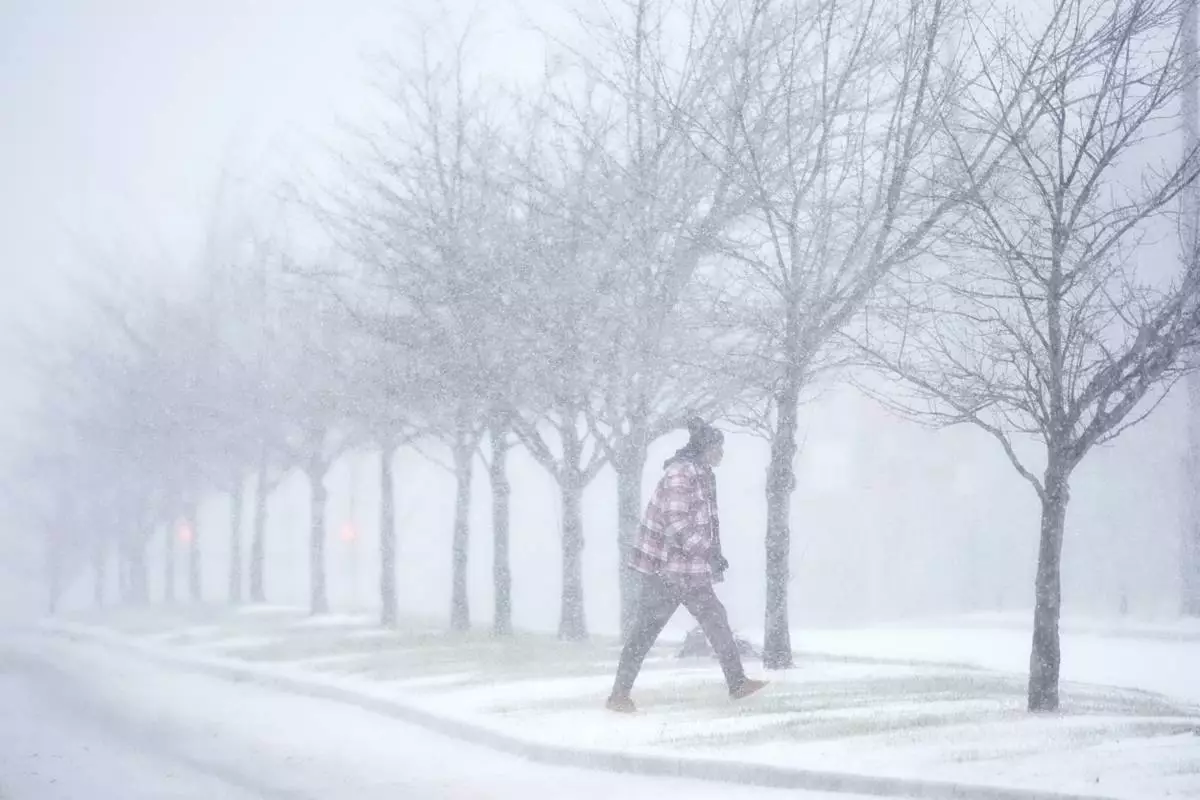
A person crosses a street as heavy snow falls Sunday, Jan. 5, 2025, in St. Louis. (AP Photo/Jeff Roberson)

A snowplow clears the area as snow blankets Capitol Hill ahead of a joint session of Congress to certify the votes from the Electoral College in the presidential election in Washington, Monday, Jan. 6, 2025. (AP Photo/Jose Luis Magana)
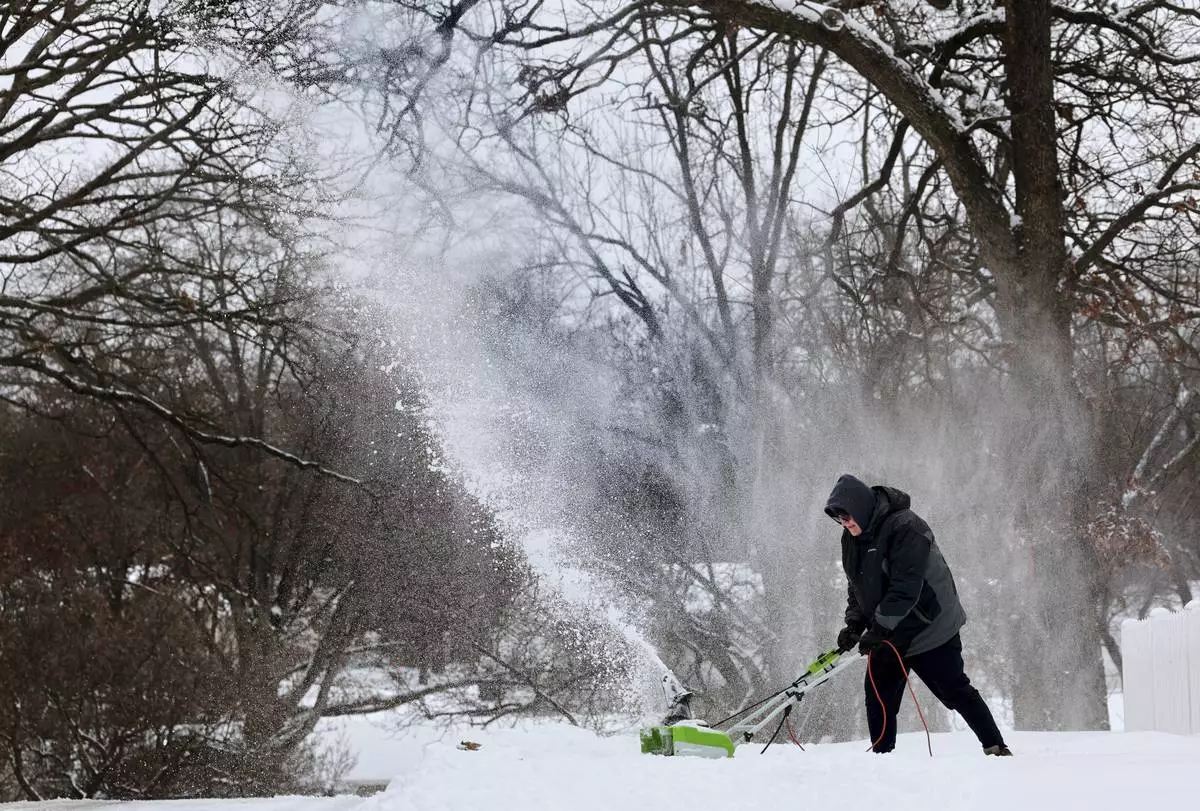
Dave Thomasson uses an electric snowblower to clear his driveway in the Webster Oaks subdivision of Webster Groves, Mo. as residents started clearing a path on Monday, Jan. 6, 2025. (Robert Cohen/St. Louis Post-Dispatch via AP)
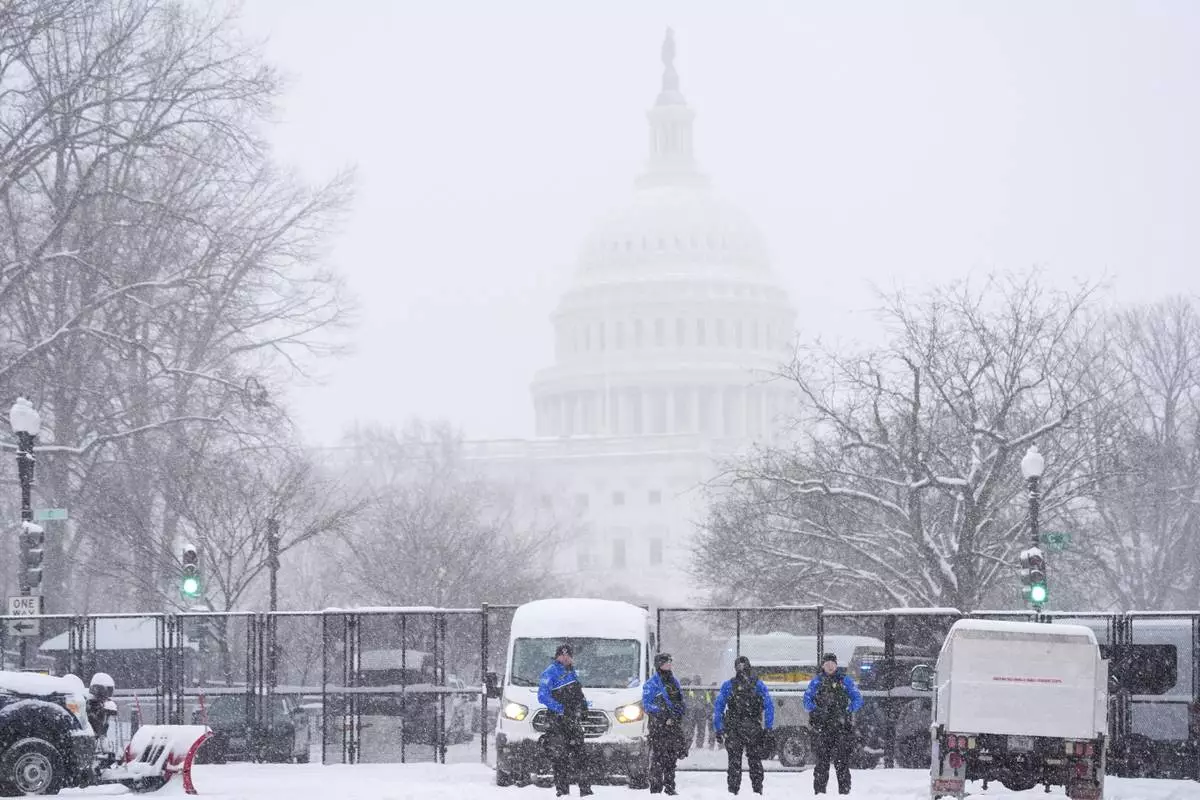
Law enforcement officers stand guard at the Capitol as snow falls ahead of a joint session of Congress to certify the votes from the Electoral College in the presidential election, in Washington, Monday, Jan. 6, 2025. (AP Photo/Matt Rourke)
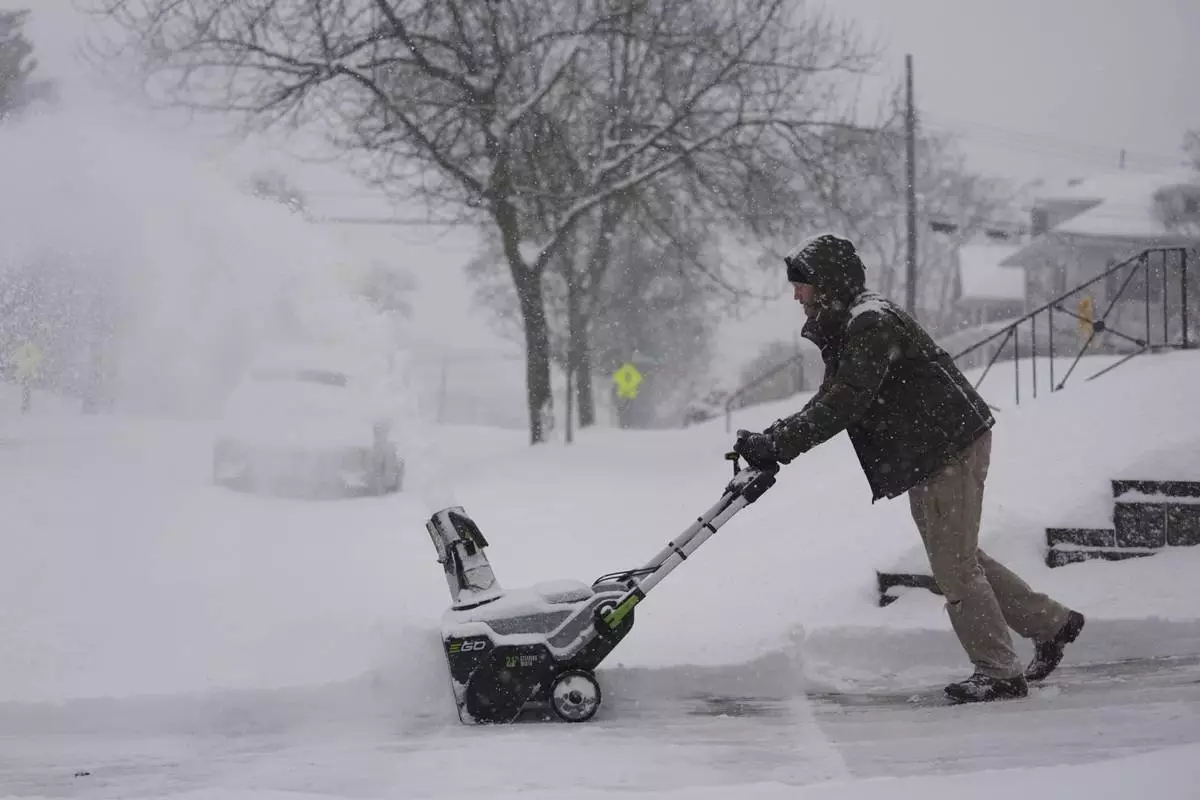
Carl Rich uses a snowblower to clear his driveway during a winter storm, Monday, Jan. 6, 2025, in Cincinnati. (AP Photo/Joshua A. Bickel)
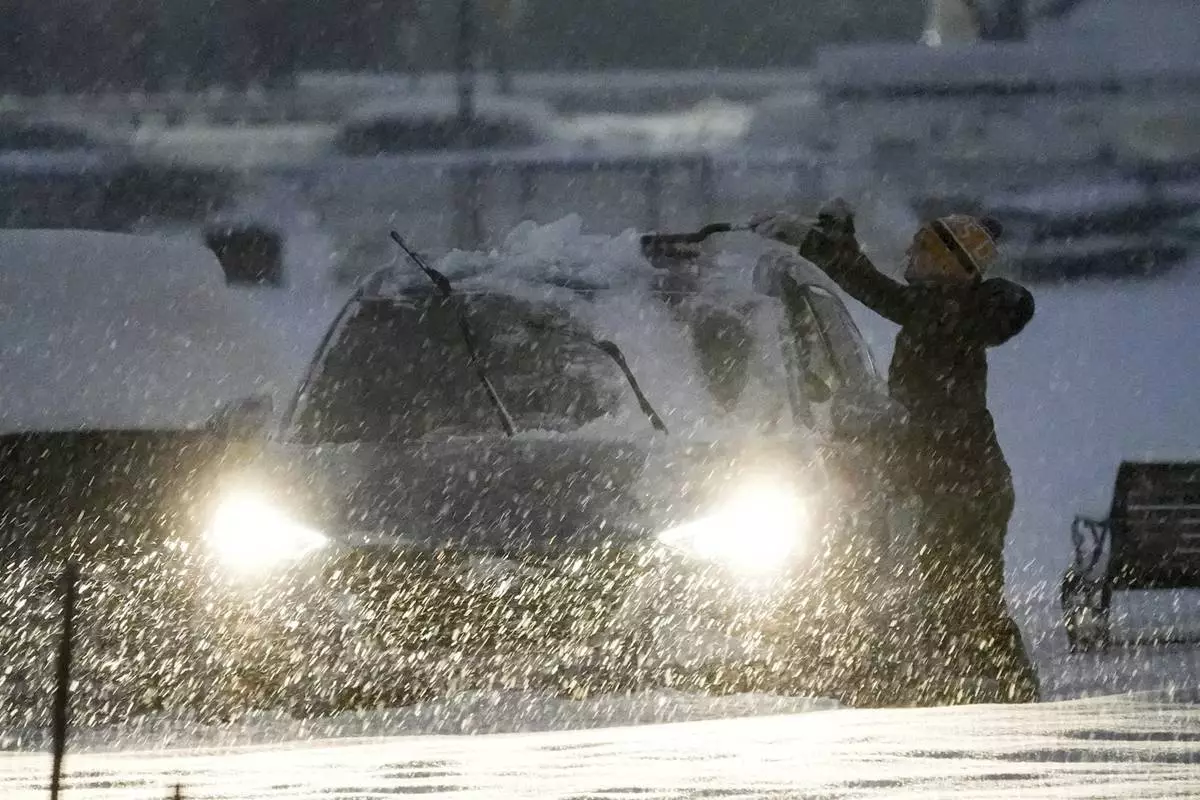
A person clears off a car during a winter snow storm in Washington, Monday, Jan. 6, 2025. (AP Photo/Matt Rourke)
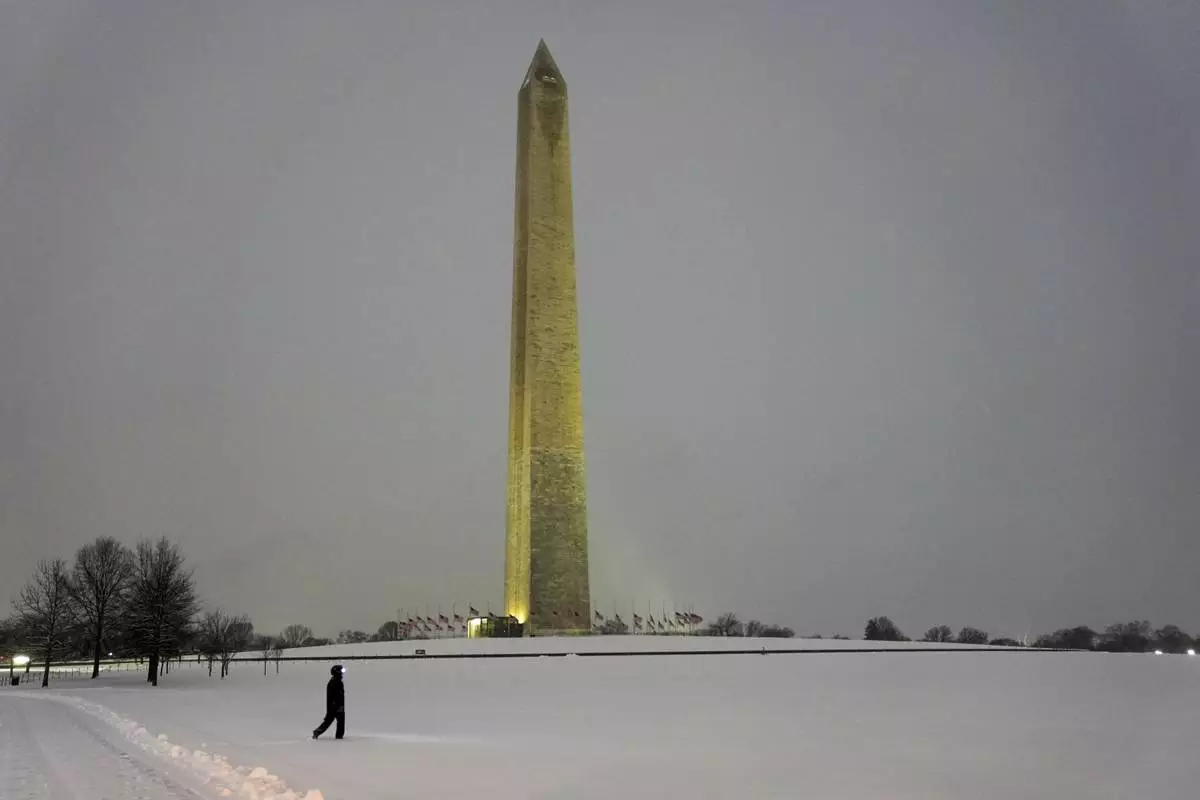
A person walks near the Washington Monument during a winter snow storm in Washington, Monday, Jan. 6, 2025. (AP Photo/Matt Rourke)
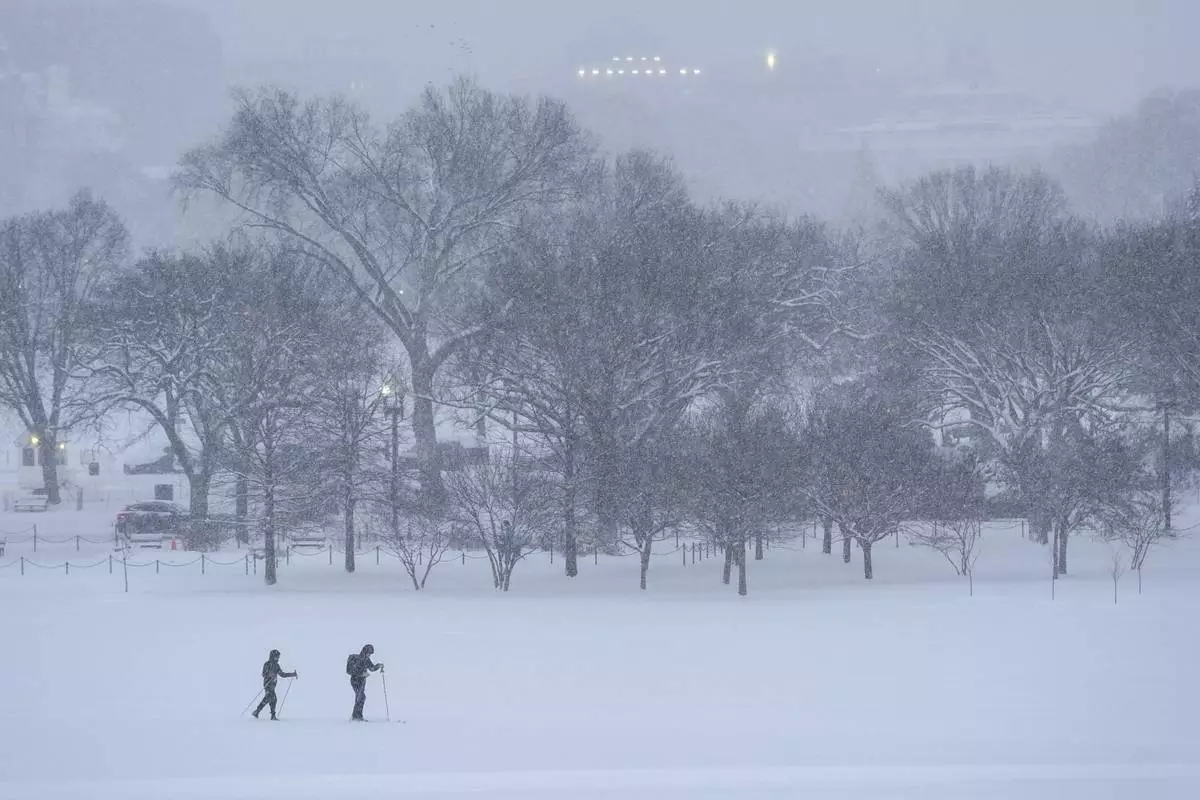
People ski during a winter snow storm in Washington, Monday, Jan. 6, 2025. (AP Photo/Matt Rourke)
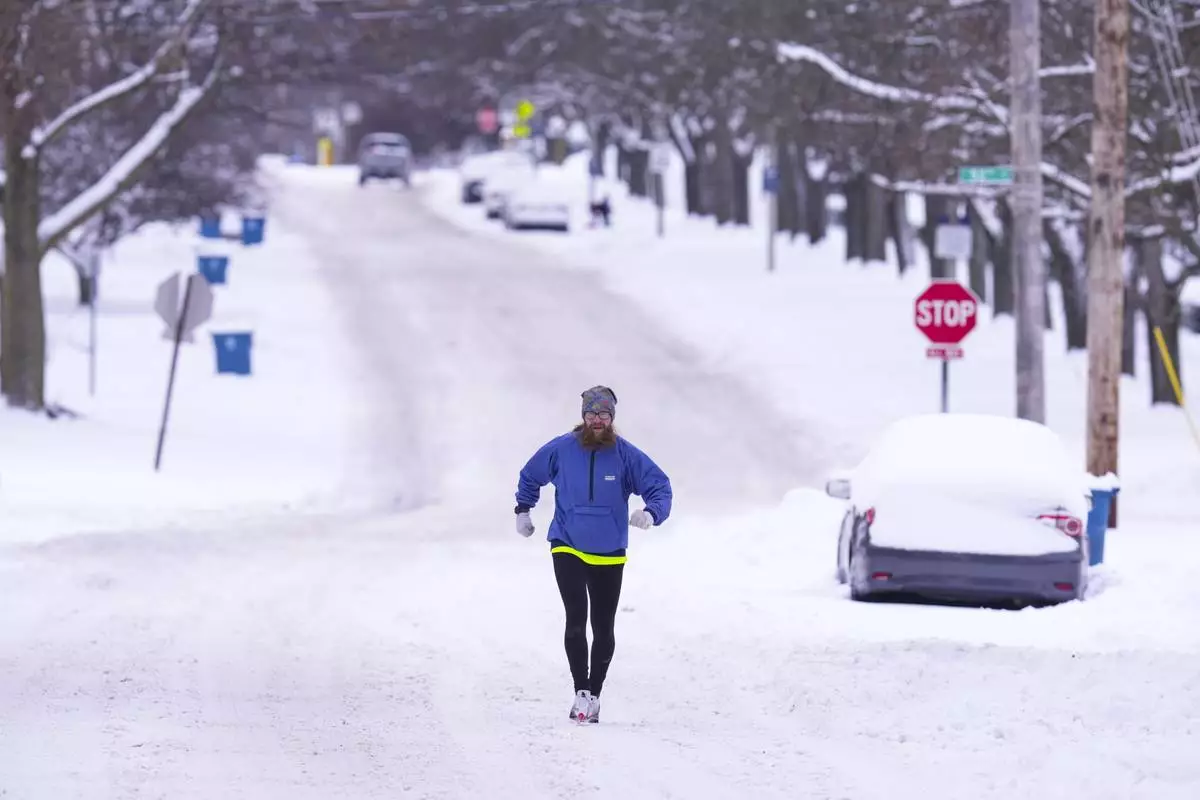
A runner makes his way through a snow-covered street in Indianapolis, Monday, Jan. 6, 2025. (AP Photo/Michael Conroy)
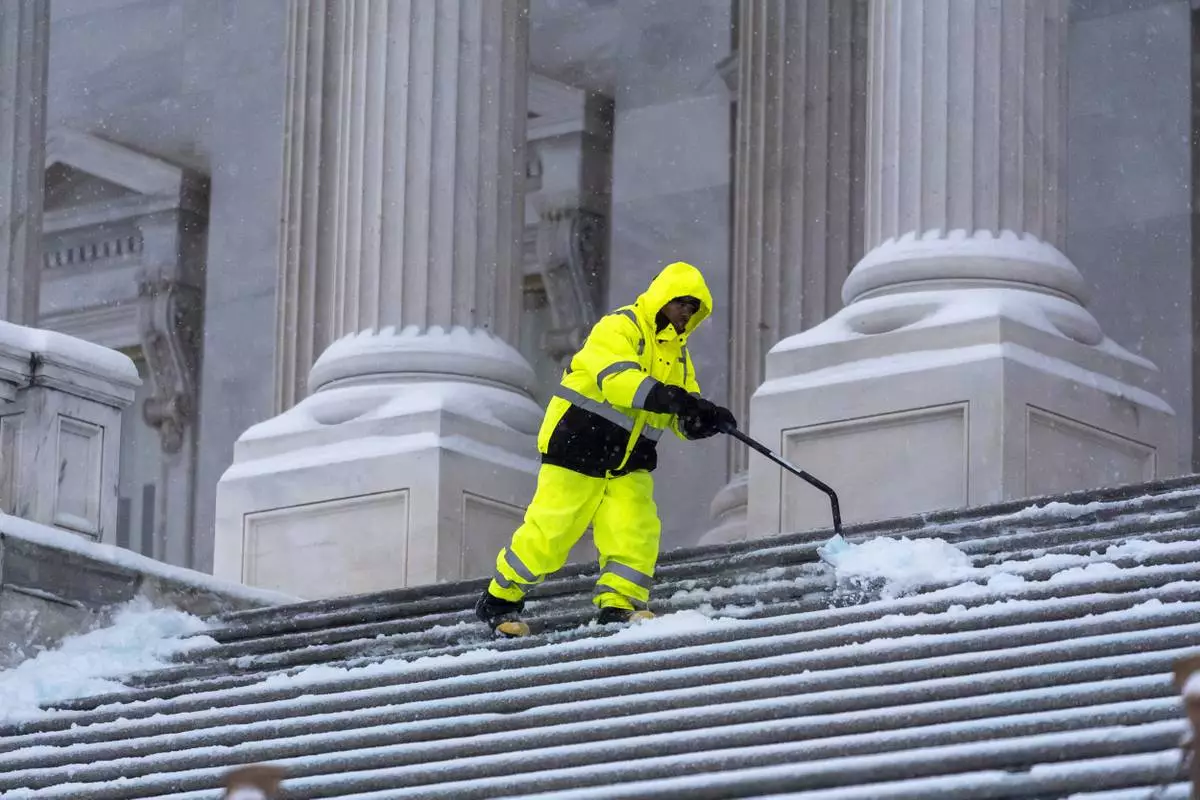
A workman clears steps at the Capitol as snow falls ahead of a joint session of Congress to certify the votes from the Electoral College in the presidential election, in Washington, Monday, Jan. 6, 2025. (AP Photo/J. Scott Applewhite)
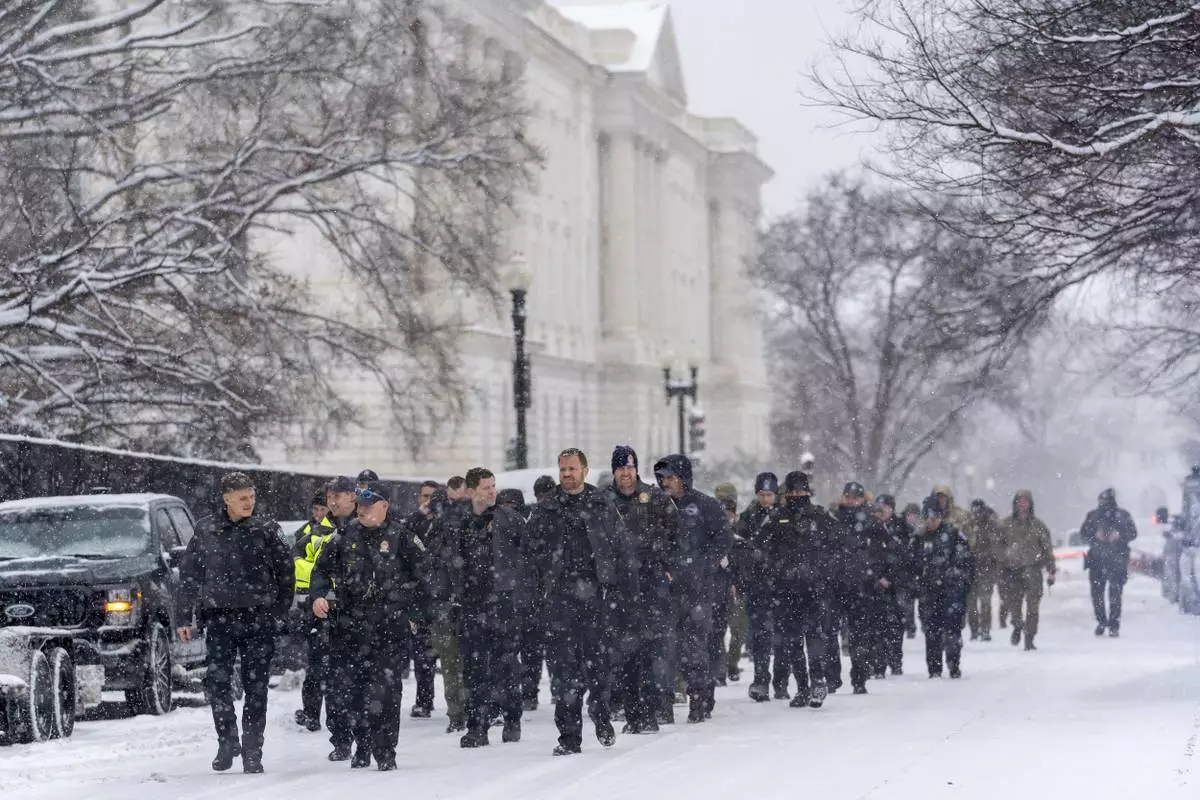
Police from nearby Arlington, Va., arrive at the Capitol to help reinforce the security presence ahead of a joint session of Congress to certify the votes from the Electoral College in the presidential election, in Washington, Monday, Jan. 6, 2025. (AP Photo/J. Scott Applewhite)

A pedestrian makes their way though a tunnel along the snow-covered Monon Trail in Carmel, Ind., Monday, Jan. 6, 2025. (AP Photo/Michael Conroy)
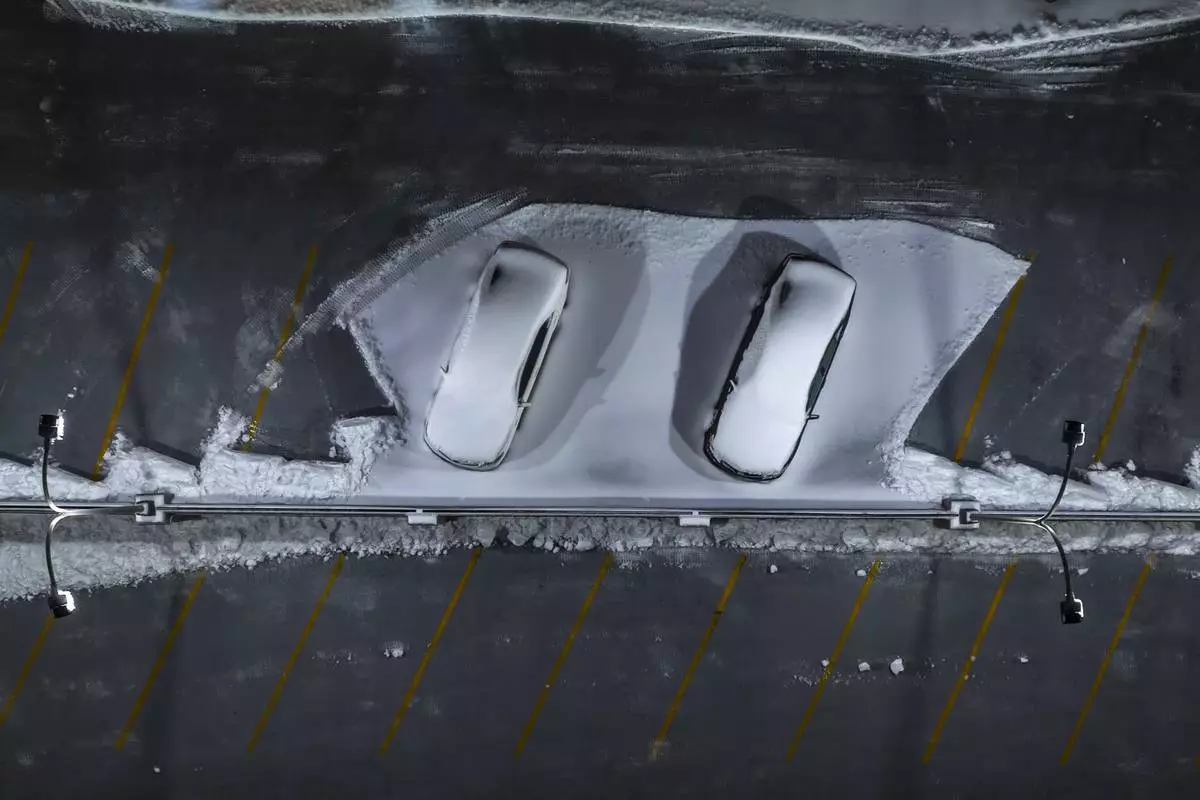
Snow covers vehicles parked at the Helix Garage in downtown Lexington, Ky., on Monday, Jan. 6, 2025. (Ryan C. Hermens/Lexington Herald-Leader via AP)
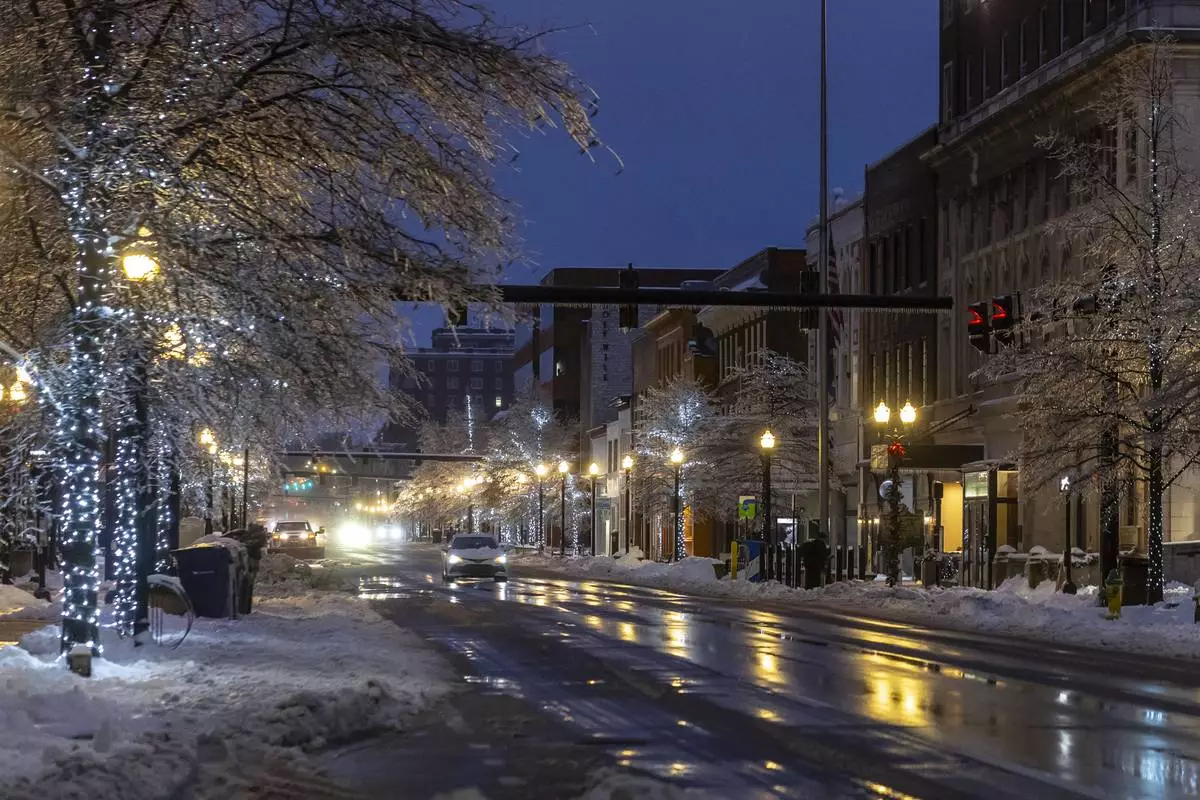
Vehicles drive along Main Street in Lexington, Ky., on Monday, Jan. 6, 2025. (Ryan C. Hermens/Lexington Herald-Leader via AP)
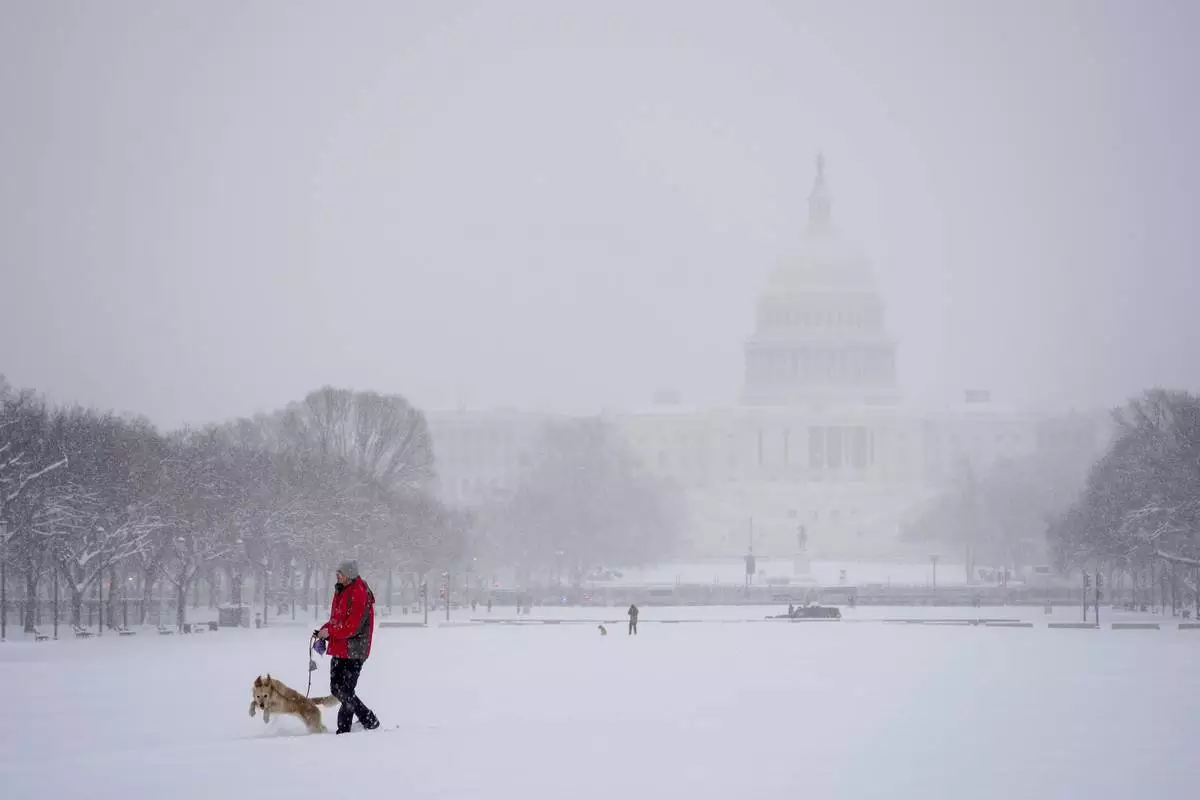
A person walks his dog in view of the Capitol during a winter snow storm in Washington, Monday, Jan. 6, 2025. (AP Photo/Matt Rourke)
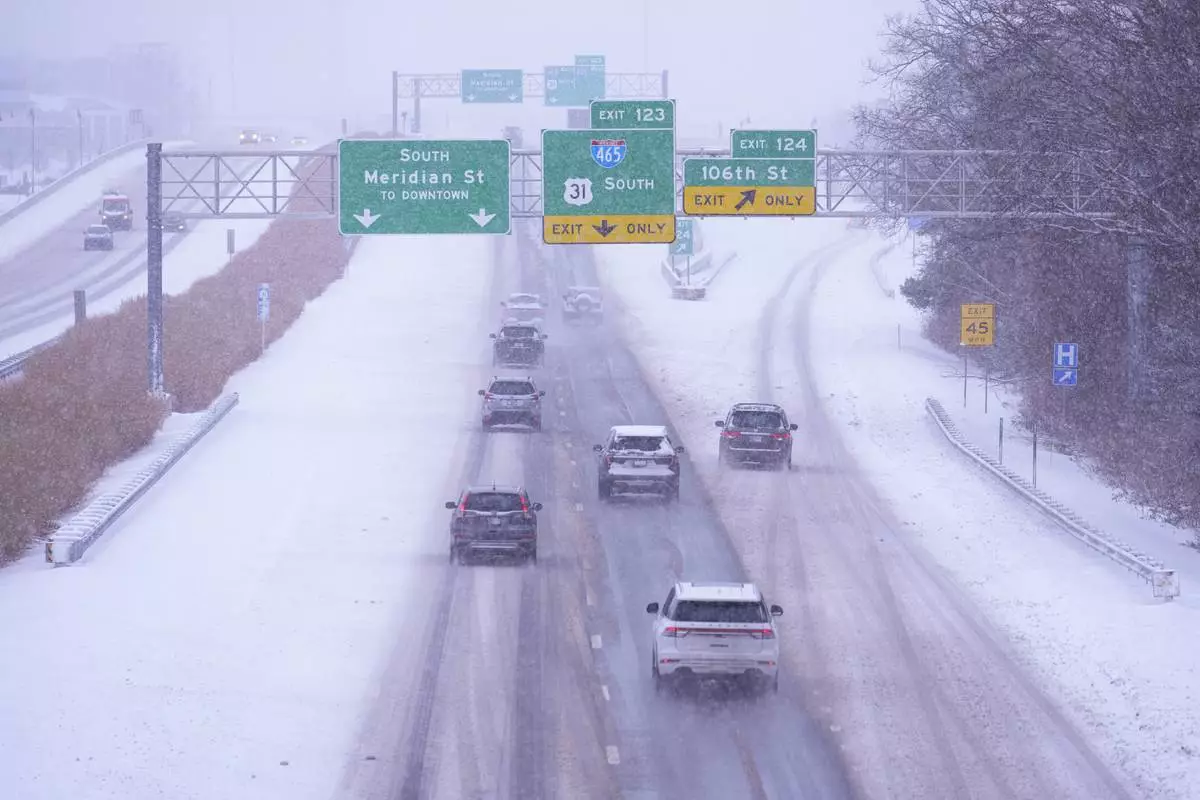
Traffic makes it way on snow-covered U.S. 31 in Carmel, Ind., Monday, Jan. 6, 2025. (AP Photo/Michael Conroy)
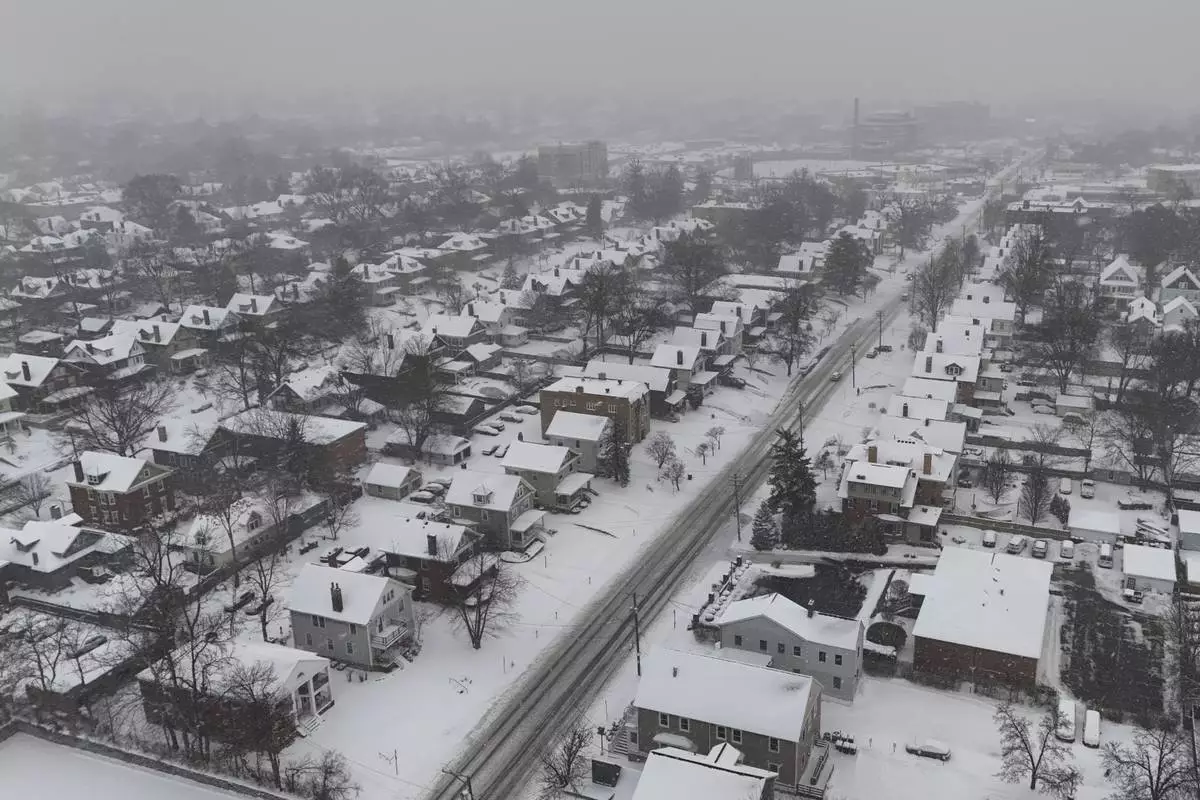
Snow covers homes during a winter storm, Monday, Jan. 6, 2025, in Cincinnati. (AP Photo/Joshua A. Bickel)

Workers clear the plaza at the Capitol as snow falls ahead of a joint session of Congress to certify the votes from the Electoral College in the presidential election, in Washington, Monday, Jan. 6, 2025. (AP Photo/J. Scott Applewhite)
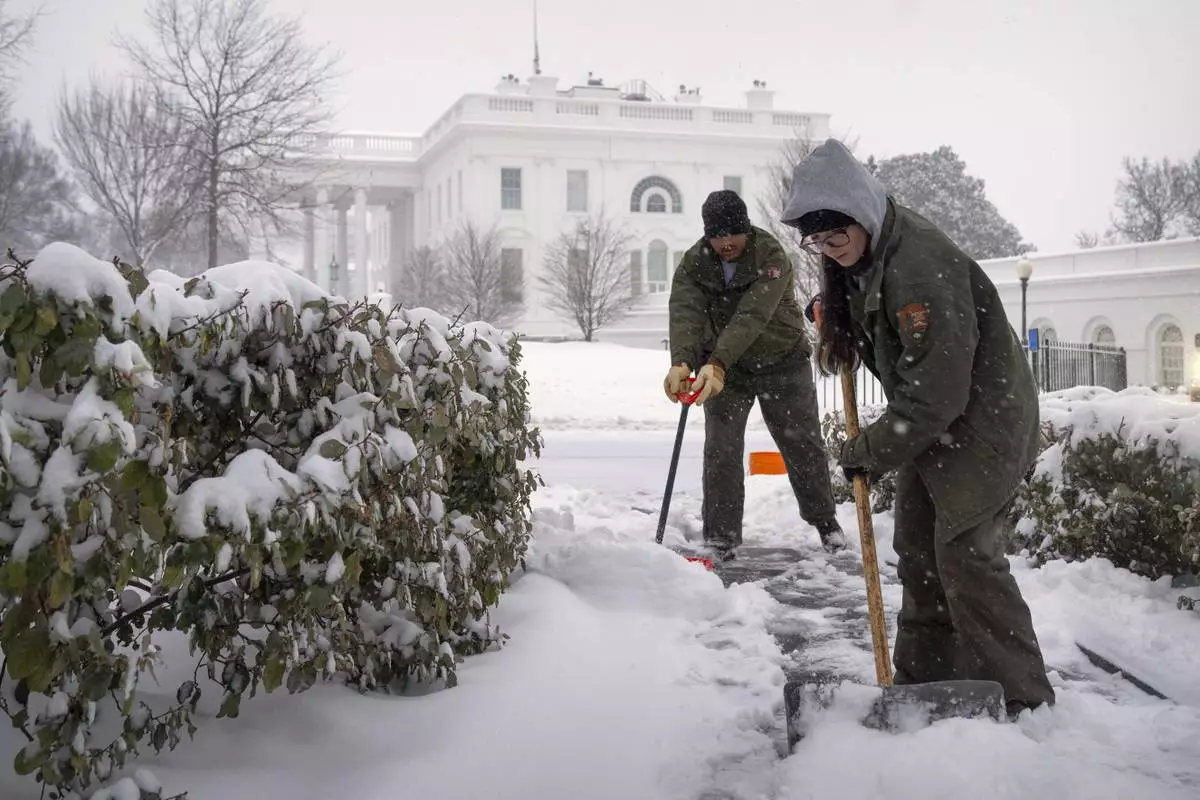
National Park Service workers shovel a pathway during a winter storm at the White House, Monday, Jan. 6, 2025, in Washington. (AP Photo/Mark Schiefelbein)
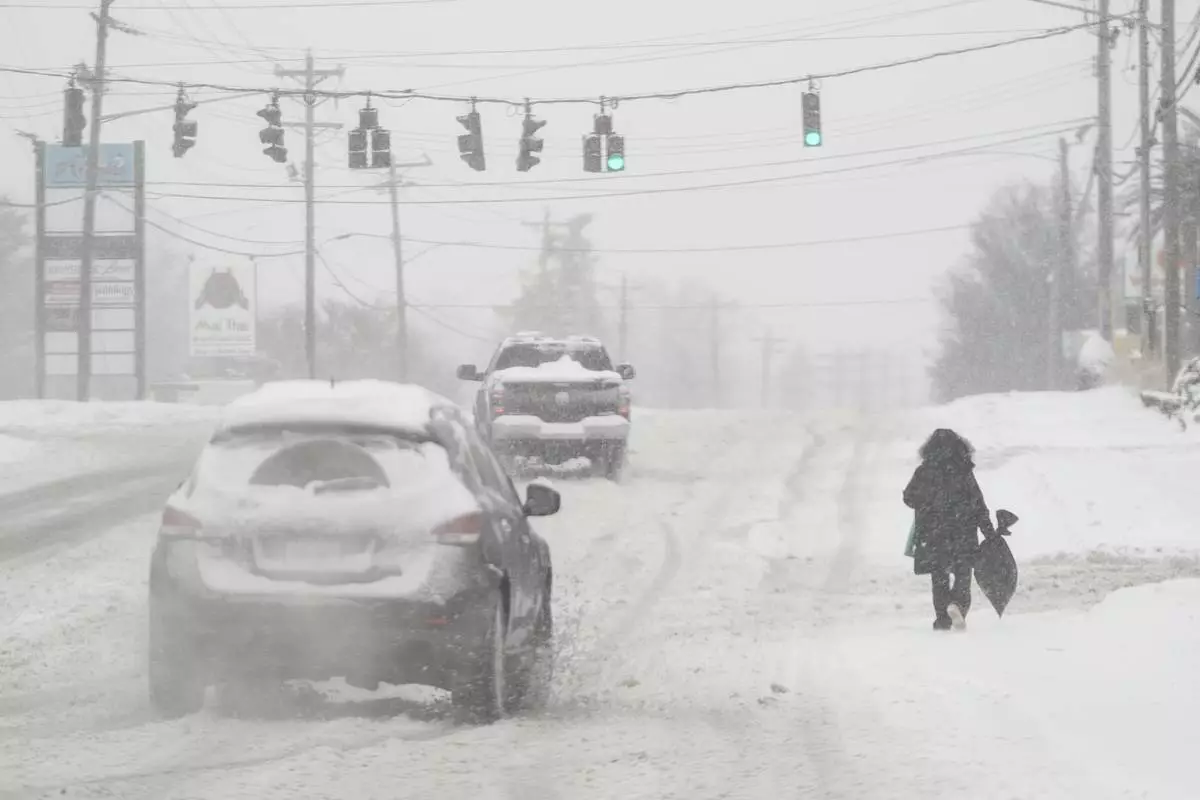
Heavy snow falls as a person walks along U.S. Route 42 in Florence, Ky., Monday, Jan. 6, 2025. (AP Photo/Carolyn Kaster)
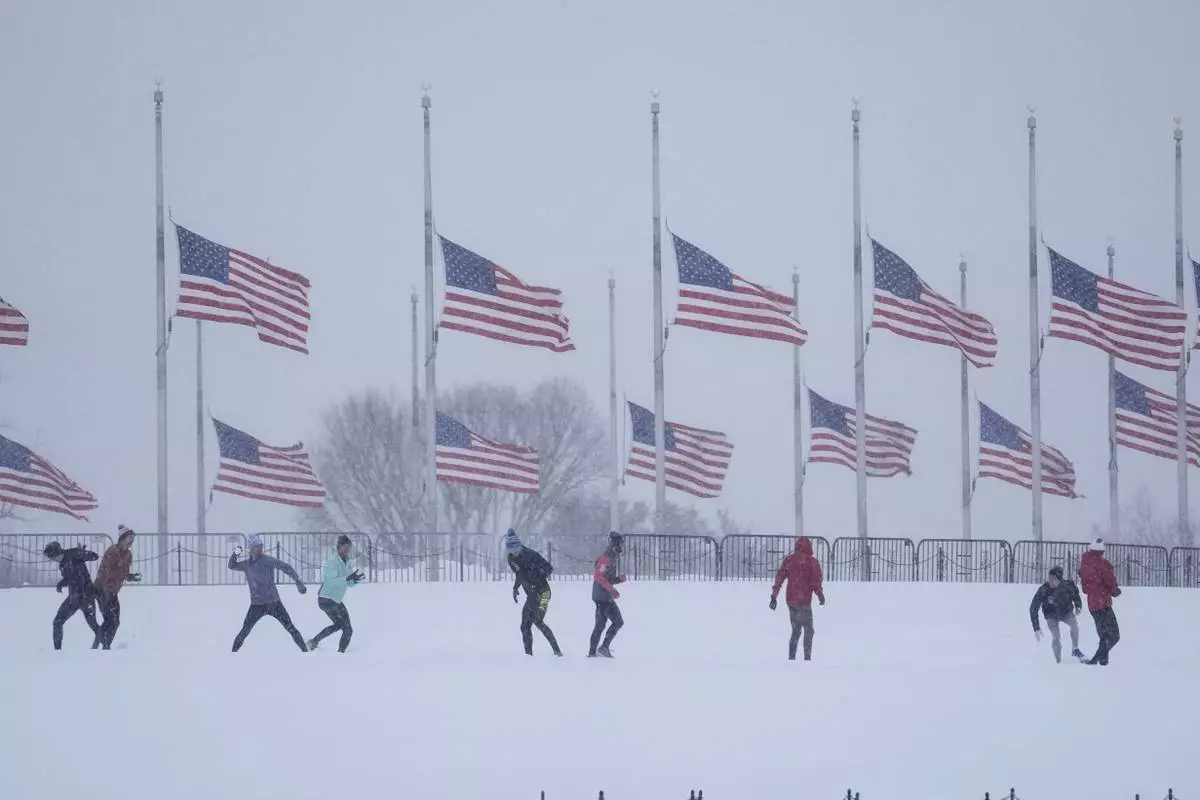
People engage in a snowball fight as U.S. flags, along the base of the Washington Monument, fly at half-staff in memorial to former President Jimmy Carter, who died at the age of 100, in Washington, Monday, Jan. 6, 2025. (AP Photo/Matt Rourke)

A child catches snowflakes with their tongue during El Museo del Barrio's 47th annual Three Kings Day parade, Monday, Jan. 6, 2025, in New York. (AP Photo/Julia Demaree Nikhinson)
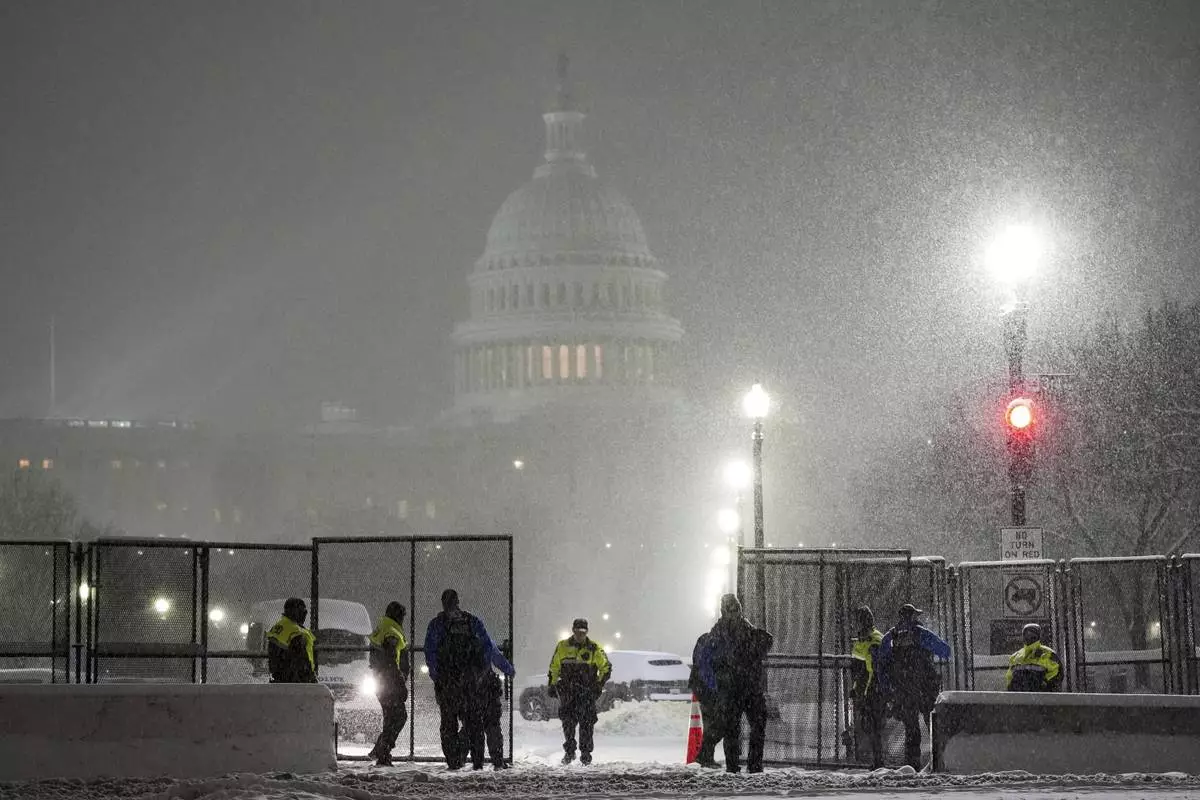
Law enforcement officers stand guard at the Capitol as snow falls ahead of a joint session of Congress to certify the votes from the Electoral College in the presidential election, in Washington, Monday, Jan. 6, 2025. (AP Photo/Matt Rourke)
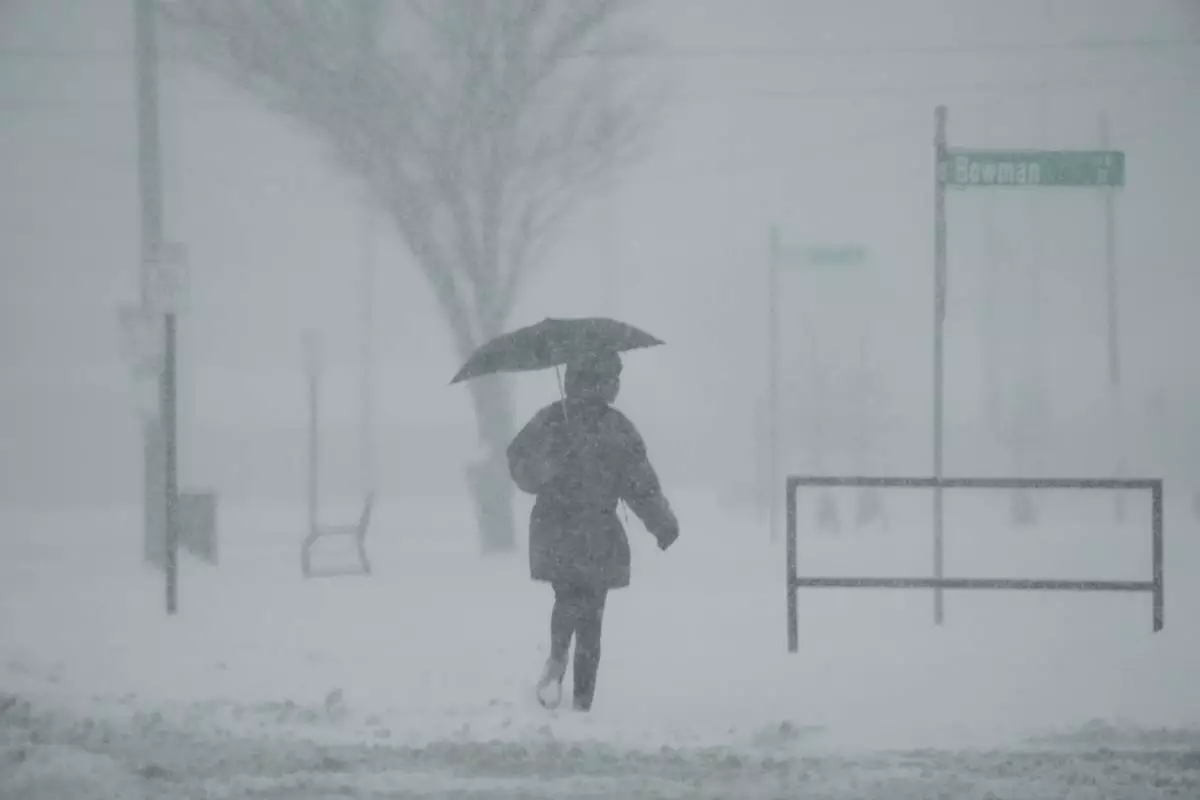
A person holds an umbrella as they walk during a winter storm, Monday, Jan. 6, 2025, in Cincinnati. (AP Photo/Joshua A. Bickel)




















































